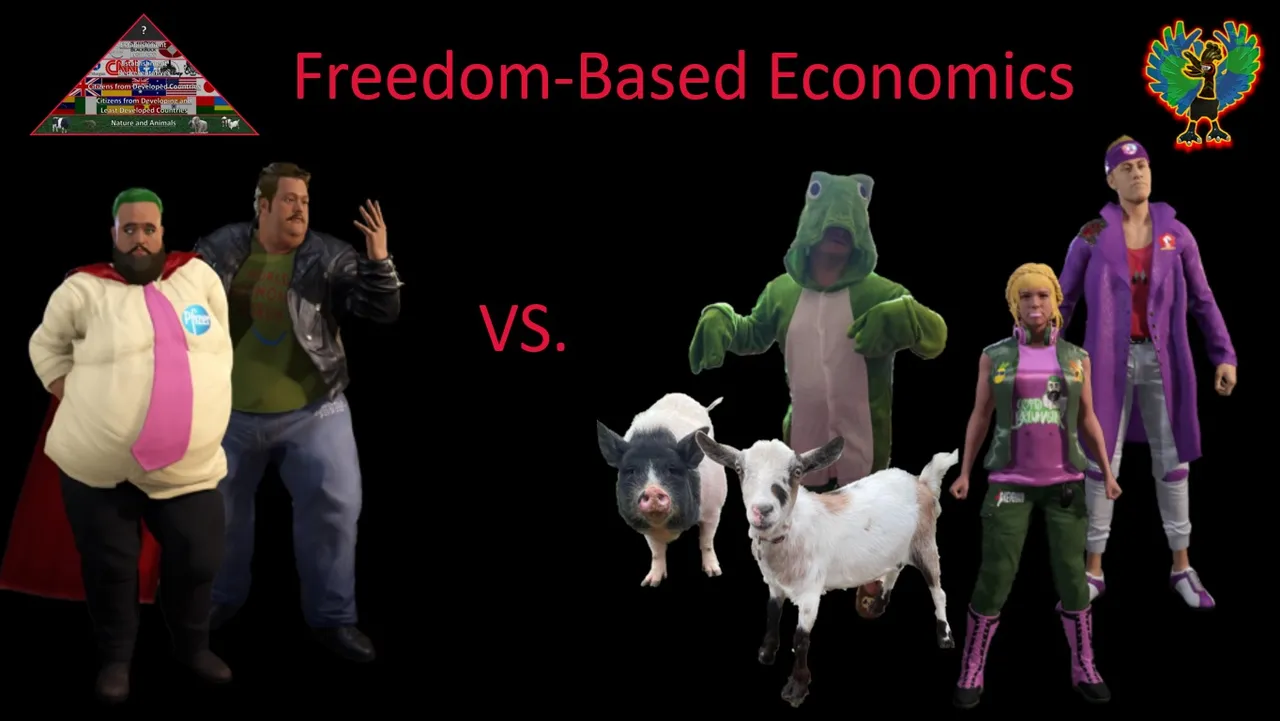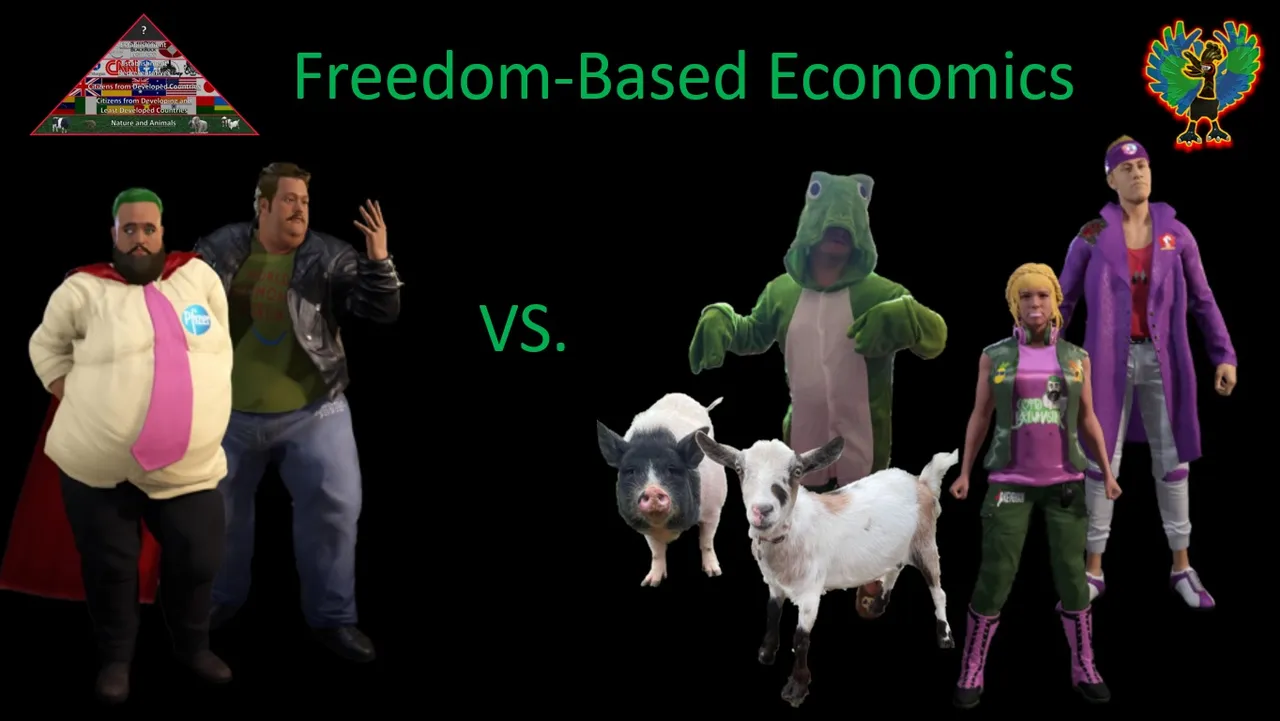
Welcome to Freedom-based Economics (Part 2).
Part 1 of the collection has covered the following topics:
- Introduction
- Happiness and Freedom
- Us, Them, and Everyone
- Centralisation vs. Decentralisation
- The Establishment
- Political Systems
- Banking and Financial Systems
- Business Systems
Information and Ideology
Making information work for us and not against us
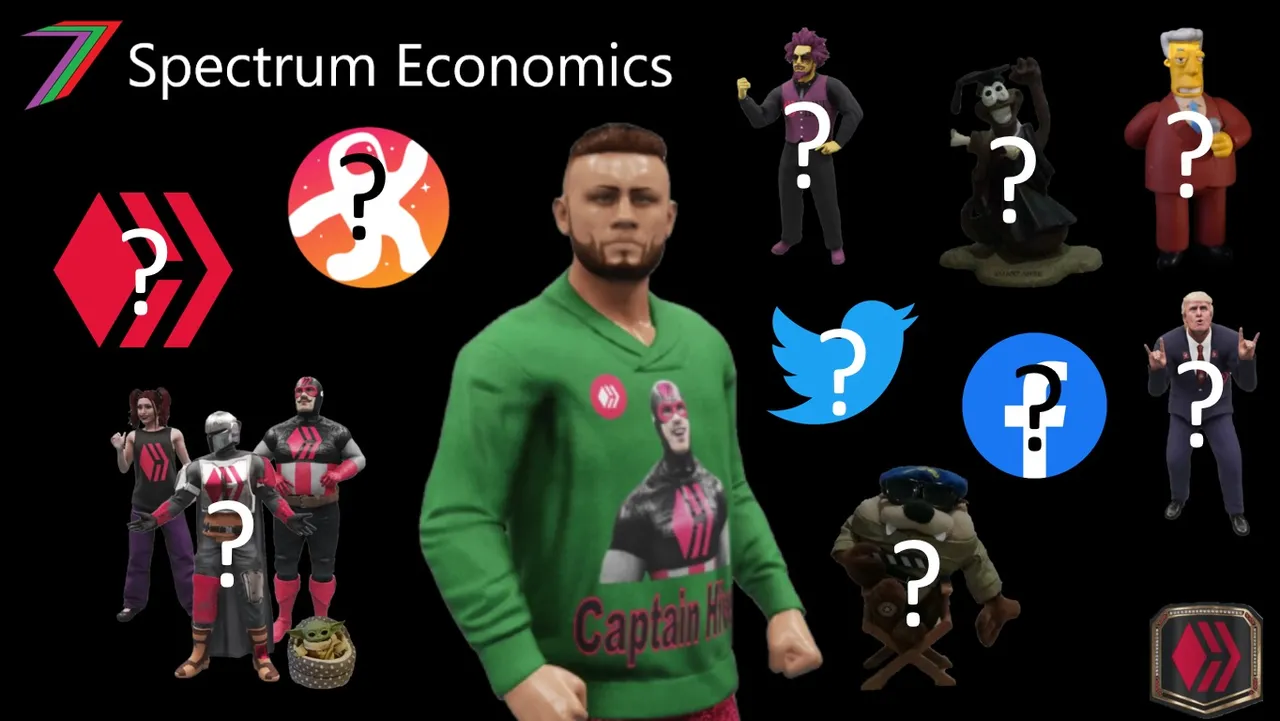
We are surrounded by information. The internet has greatly increased our access to information. We do not need to rely on just a handful of sources. However, at the same time, we are also guided towards particular information. Mainstream media only covers a few selected topics. Social media and search engines rank information based on their algorithms. Therefore, we encounter the same types of information at the start of any search. Social media platforms often censor or hide information they classify as misleading. These limitations are often compounded by the people we are closest to such as family, friends, and work colleagues who might be regurgitating from these easily available sources. We need to be patient with our search for information. We need to find as many alternative sources as we can and we should assess them individually. After a while, we can determine which sources of information are the most reliable; thus, making them the first places we search when seeking or verifying new information.
Prevent, Solve or Manage
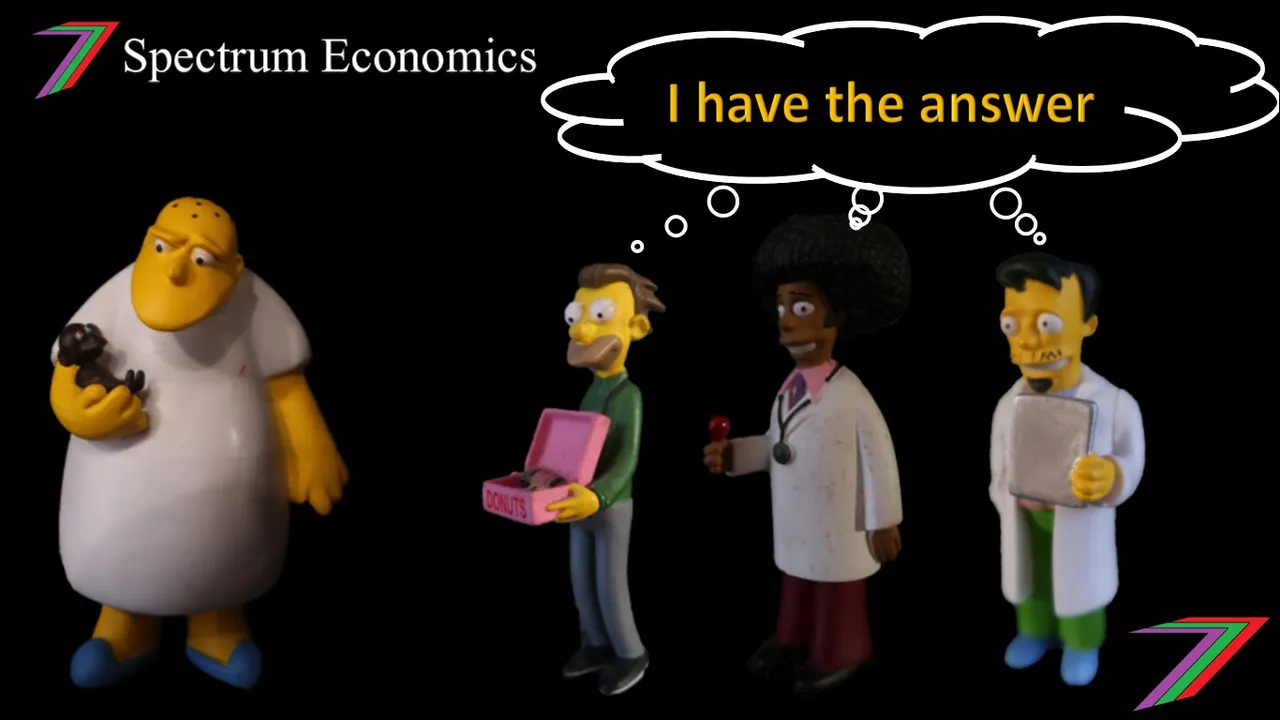
Tackling problems is an essential part of economics. Prevent, Solve, or Manage is a very simple but not widely discussed approach to problems. Problems can be confronted in three ways. They can be prevented from happening in the first place, solved when they do occur, and if they cannot be solved they can be managed. The post considers various other elements in decision-making such as risk, cost, and ability to predict events. This post set the approach for a long series of posts that described how Prevent, Solve, or Manage can be applied to many areas.
Causes, Problems, and Symptoms
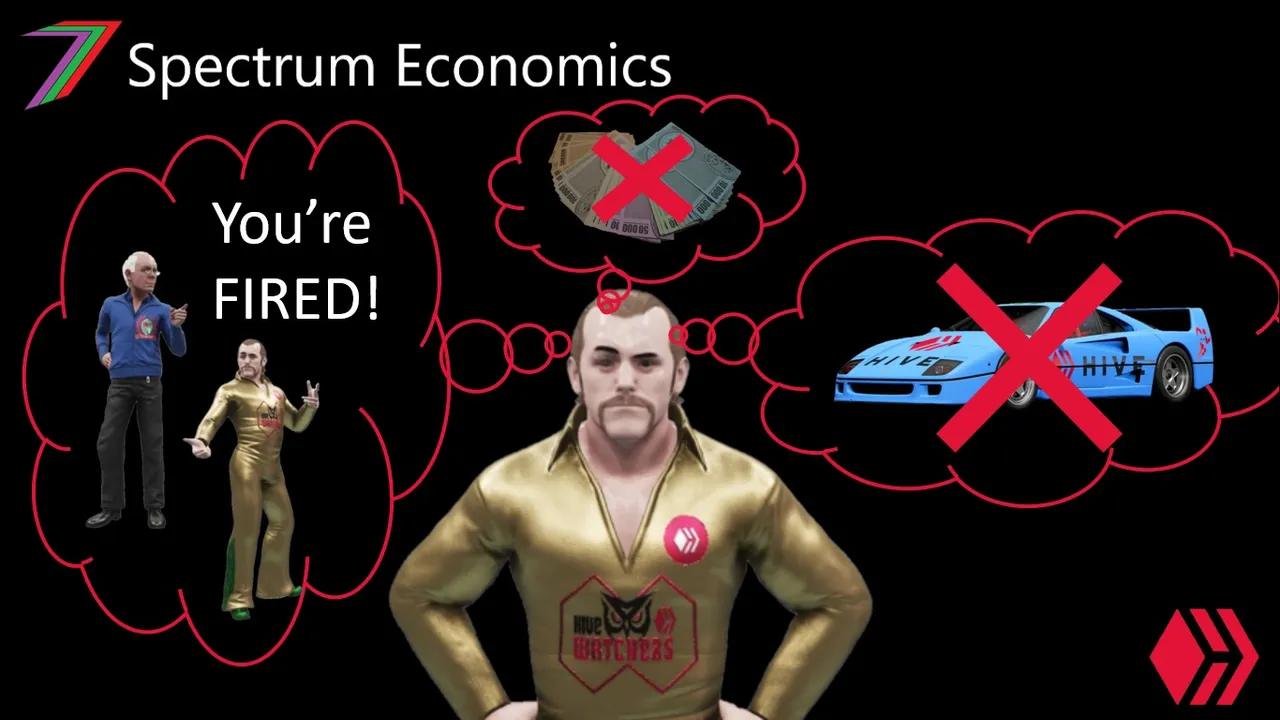
The Prevent, Solve, or Manage approach works well with the Causes, Problems, and Symptoms approach. We often do not immediately identify problems. Instead, we see the symptoms of the problems. Tackling the symptoms of problems does not eliminate the problems. Symptoms are just the manifestation of the problem. We need to understand what is causing the symptoms. Eliminating the problem should eliminate all the symptoms. It is also worth considering what caused the problem, to determine if it can be prevented in the future. To put the two approaches in perspective we could argue that prevent is handling the causes, solve is handling the problem, and manage is handling the symptoms.
Divide and Conquer Strategy
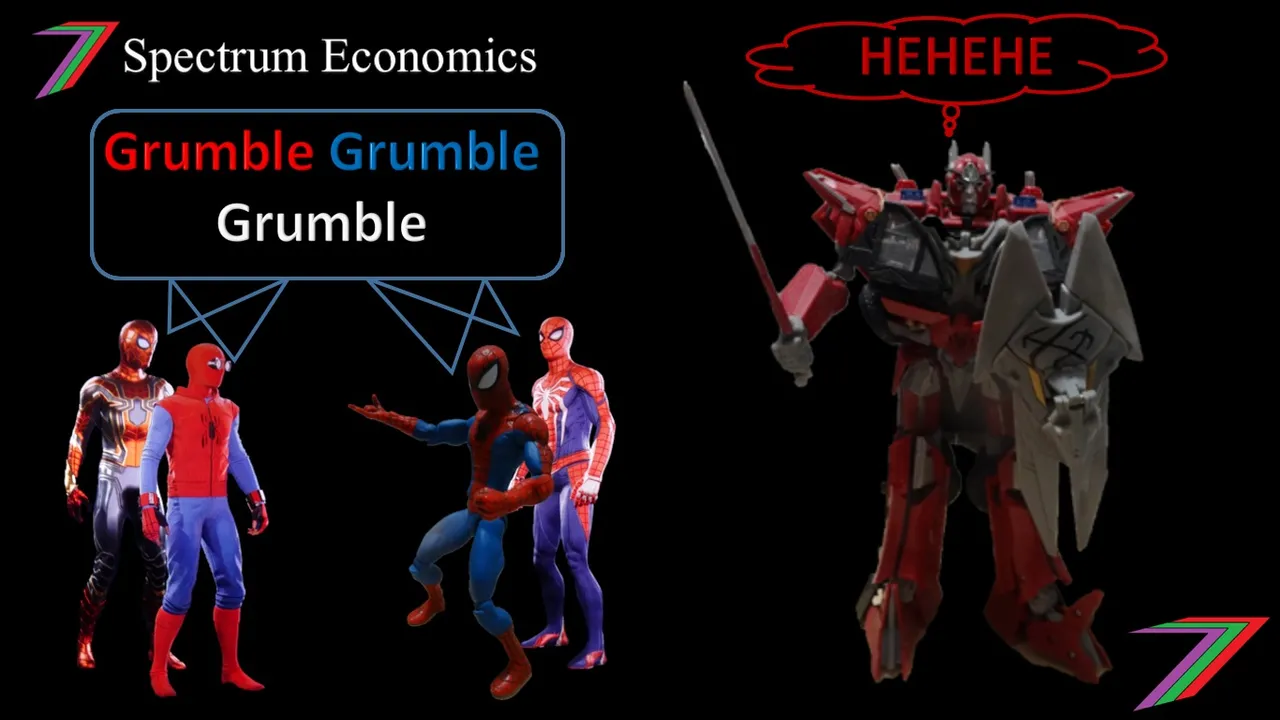
Divide and conquer strategies have been used for a very long time. A strategy used in wars would involve provoking other countries to fight amongst themselves so they would become weaker and more vulnerable later on. Divide and conquer strategies are used by Governments and media as a means of distraction to cover up events or disguise information. If people are too preoccupied fighting amongst themselves they often miss the bigger picture and often the bigger threat.
Controlled Opposition and Divide and Conquer
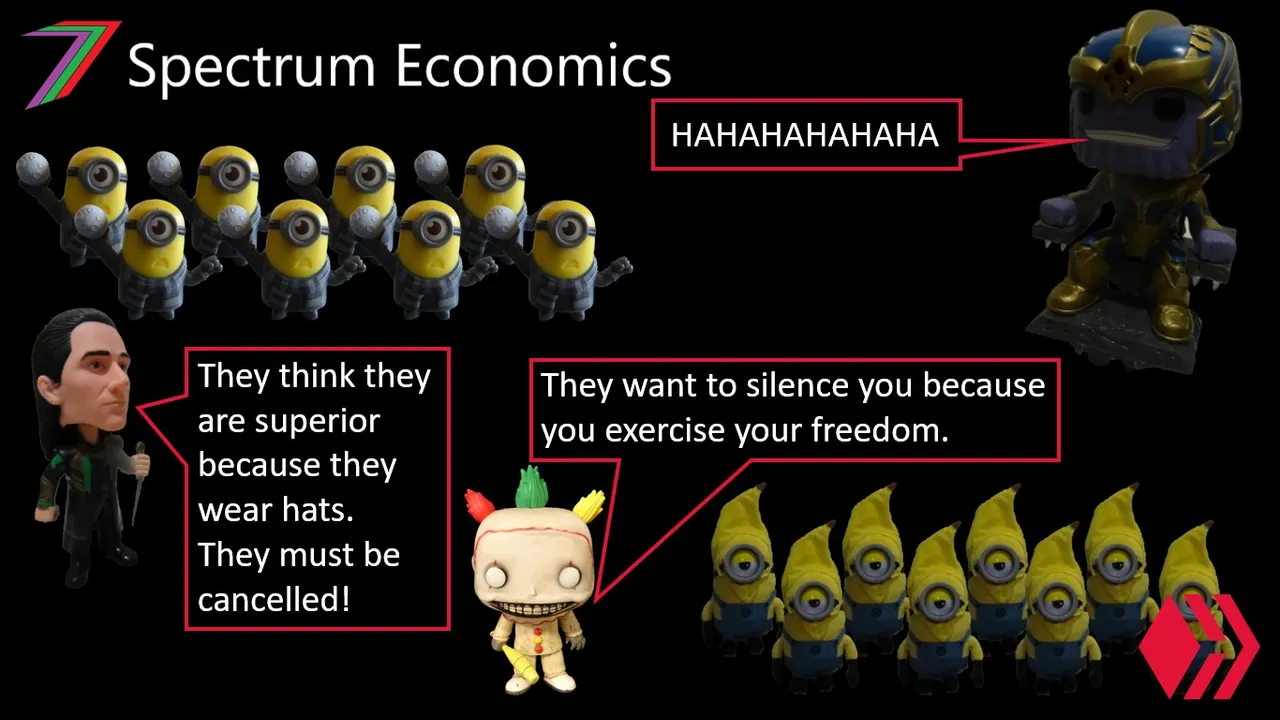
Misdirection is one of the most used tools by the Establishment to get whatever they want. We are distracted or focused on a couple of things while other far more significant things take place, which we are almost unaware of due to the distraction. The most common and apparently most effective methods of causing distraction are divide and conquer and controlled opposition. Political systems nearly always focus on pitting two opposing groups against each other. This is done through the two party systems as well as the dual ideology system of left vs. right. Selected views from one group are adamantly opposed by the other group (e.g. you are either with us or against us). This opposition is created and maintained through the use of controlled opposition. There are controlled opposition in the media and politics. They guide opinions in particular directions and put them in complete opposition to another alternative opinion that is being promoted by other controlled opposition or the Establishment itself.
Divided by Labels – Focus on Gender and Sexual Orientation
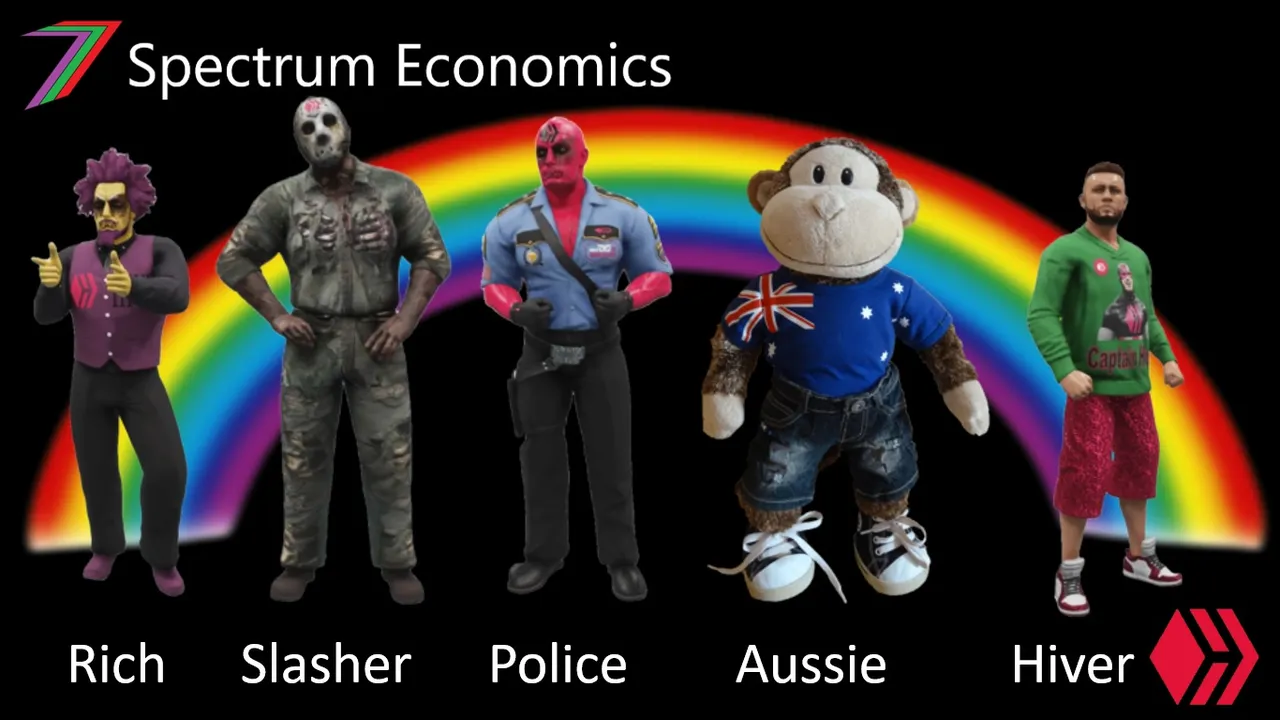
Labels are often used to describe a person’s sex, sexual orientation, race, religion, ethnic background, political preferences, profession, and many others. Labels have a purpose but they are often overused and used in a divisive manner. People are sometimes treated as their label rather than as unique individuals who share some common traits with other people. The post focuses on labels relating to gender and sexual orientation. They have become unnecessarily intertwined through the LGBTQ+ movement. The number of gender labels have exploded. Most of them have little to no meaning as they are highly subjective. This subjectivity has unnecessarily flowed onto sexual orientation.
My Views on Systemic Racism
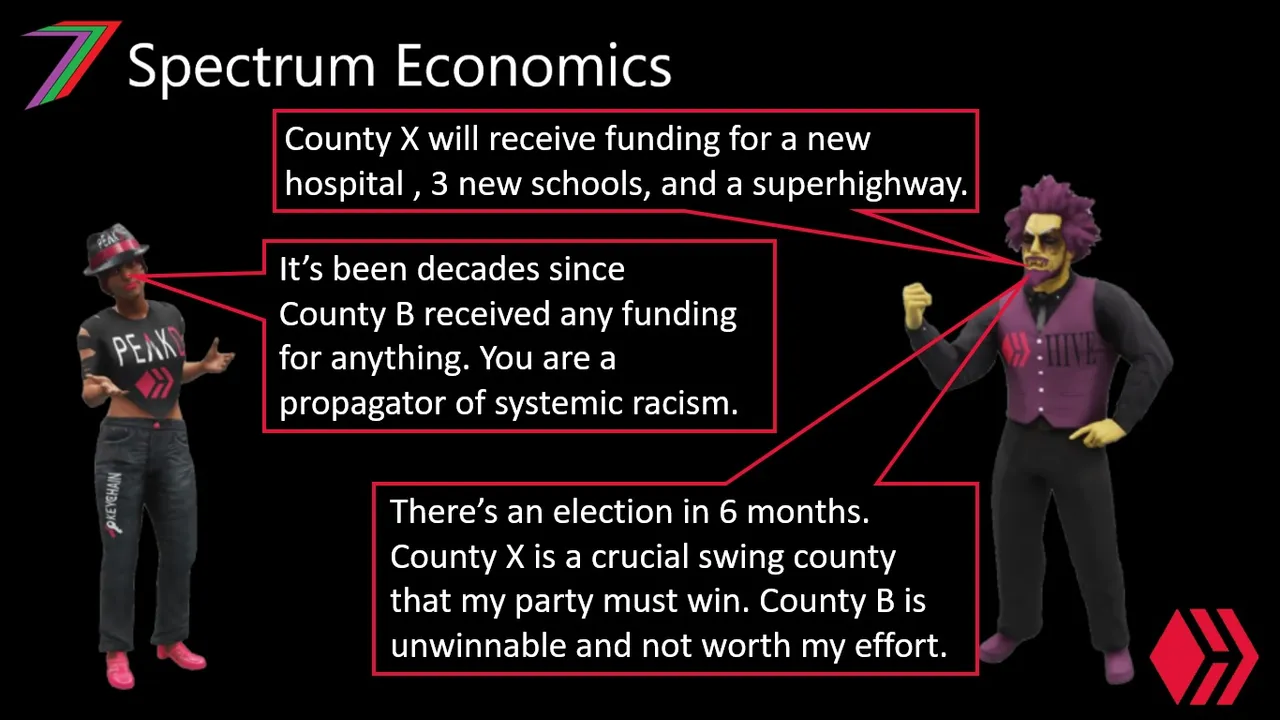
Racism has always existed in some form. It exists for many reasons such as presumed superiority, fear, prejudice, misinformation, or projected personal experiences. It is unlikely to ever be completely eliminated. However, it can be reduced through education and exposure to different races and cultures. Understanding and empathy reduces racism as we become able to view things from another group of people’s perspectives. Systemic racism occurs when systems benefit one race over another. This could be intentional or unintentional. For example, targeting crimes more likely to be committed by a particular race while paying less attention to crimes more likely committed by another race. Anything relating to race is also very sensitive. This is because of the extreme racism that has occurred throughout history. Therefore, race is often used to divide people. It is done be inducing racist behaviour or by falsely accusing racist behaviour.
Rise of the Woke

Woke ideology is some of the most radical and dangerous ideology of this century so far. It attracts people because it sounds like it promotes good ideals. It claims to promote inclusivity, social justice, environmental protection, truth and honesty, respect and kindness, and equality. In reality, woke ideology does not promote these ideals. In many cases, it promotes the exact opposite of these ideals. The most ardent advocates of wokeism coerce other people to support their methods of pursuing their claimed ideals. They have no tolerance of any alternative ideals or values. The post breaks down all the above mentioned ideals and how woke ideology twists them to fit an alternative agenda.
Right to Censor!!! Power to Censor!!!

Who has the right to censor? Who has the power to censor? It appears that if you have the power to censor, you give yourself the right to censor. Censorship is strongly linked to ownership. Private businesses can censor because they own the media (control and possession). Government can censor at will if they are authoritarian dictatorships. If they are democratic, they only have the right to censor, if censorship is supported by the public. Governments can manipulate people into believing censorship is in their best interests. Therefore, they get away with censorship with minimal resistance.
People are too occupied and too stressed to question the narrative
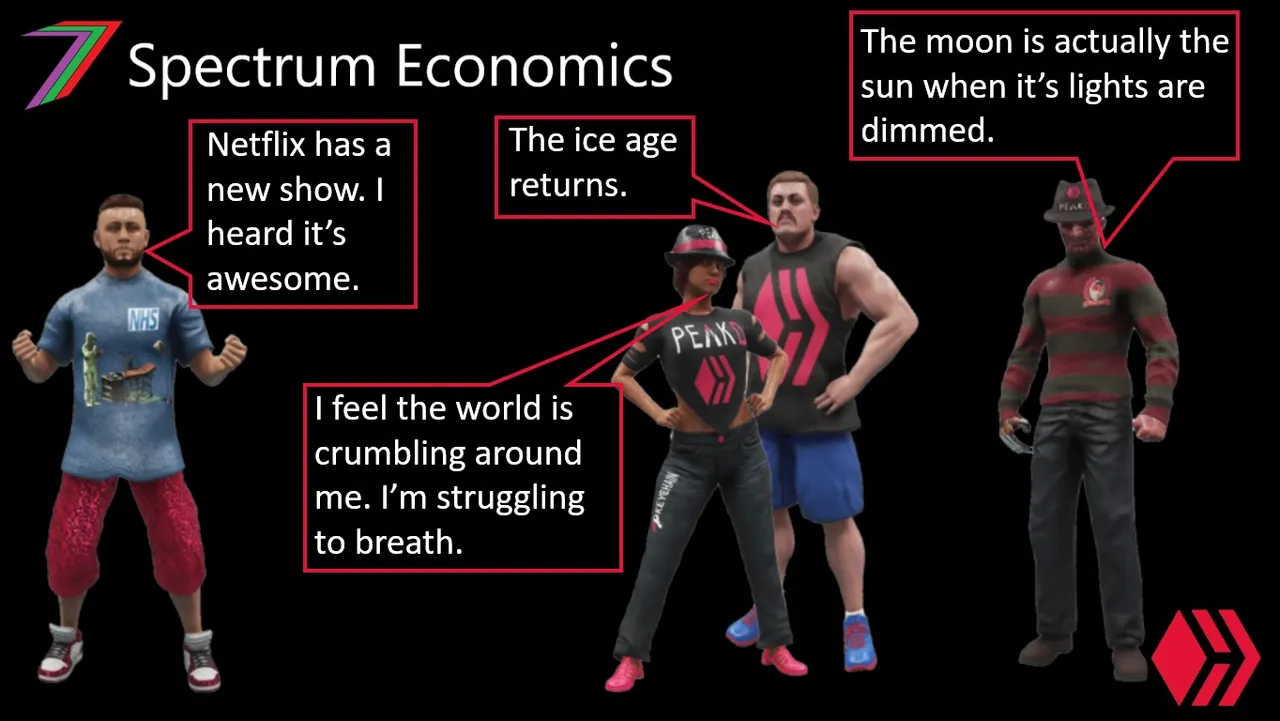
Even though, we are surrounded by information, people do not actively seek different information from different sources. This is because people are too busy and/or too stressed to do so. Most adults have full time jobs that take up most of their days. When they are not working, they are occupied with distractions such as media and social media. They are too stressed. People in western countries established a reasonably good standard of living during the post-war period (World War Two). This has created the expectations for increasing standard of living. When improvements in standard of living slows down, stagnates or even reverses people become afraid of what they will lose. Media and Government add to this stress with fearmongering over things such as pandemics, climate crisis and more. More stress creates more illness, which also adds more stress. Increased stress is another reasons why people fill their free time with distractions.
Education – Prevent, Solve, or Manage
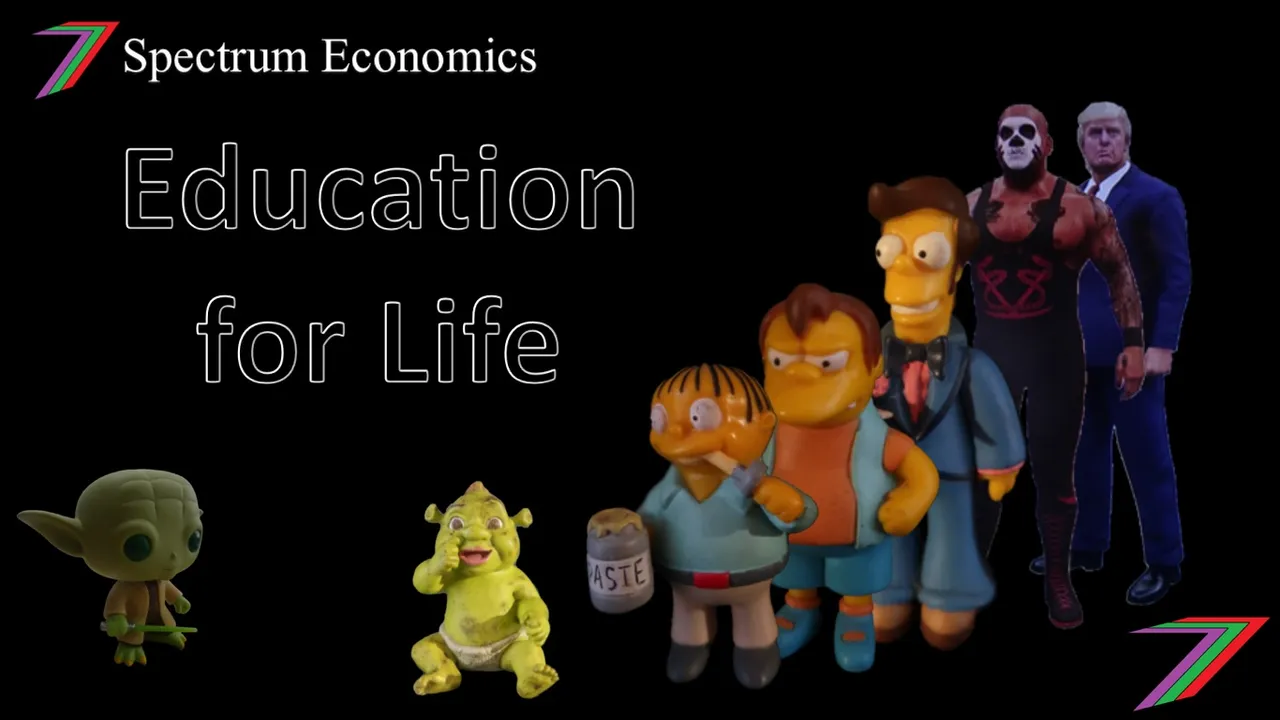
Education is not just for the young. It is a lifelong learning process. Receiving a good education when we are young is important as it starts us on the right path. A good education is one that enables us to think for ourselves. Not everyone receives a good education when they are young. This makes life more difficult but we can still obtain a good education or re-education when we are older. We can do this with external help or even by ourselves if we have an open mind.
Teaching and Learning Philosophy
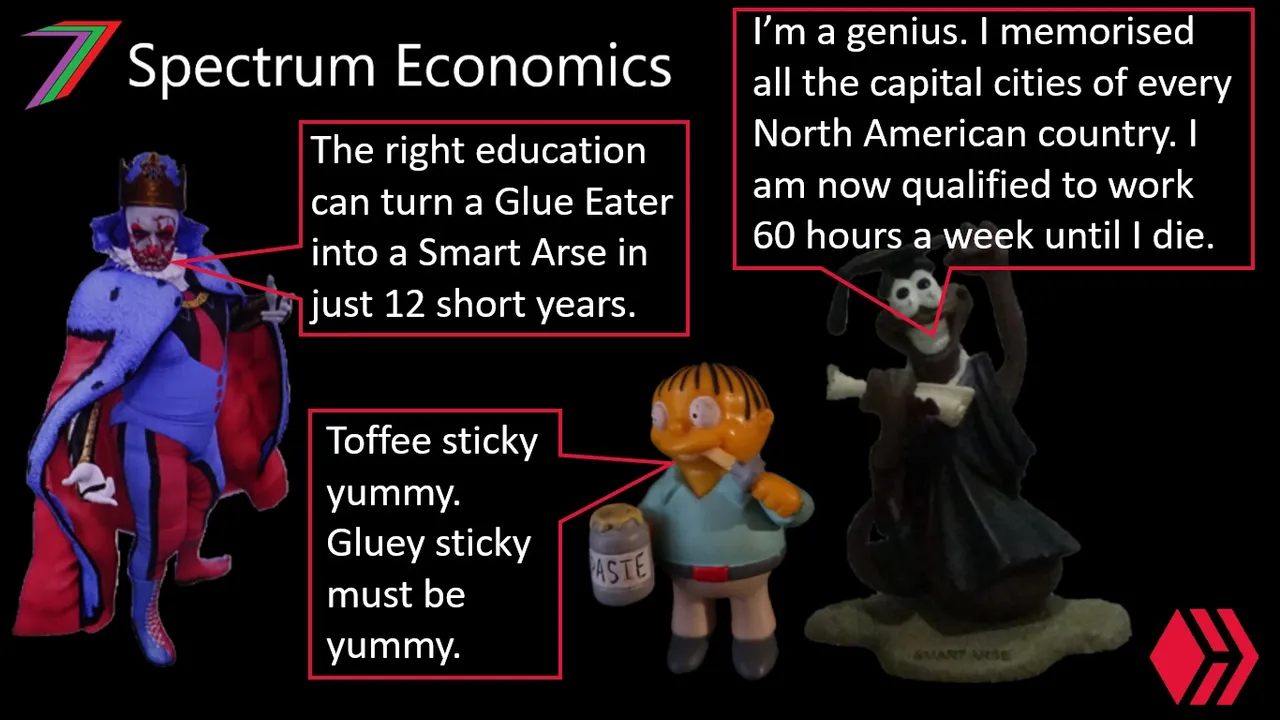
A good childhood education is an essential building block for our lives. It needs to provide us with skills so that we can learn by ourselves and are able to become self-sufficient. The post highlights three important areas that should be included in childhood education. These are communication skills, interpretation skills, and discovery and exploration skills. Once these skills have been established, children should be given the freedom to follow their interests. The education system should be designed to enable them to do so.
Scenario Questions (Economics)
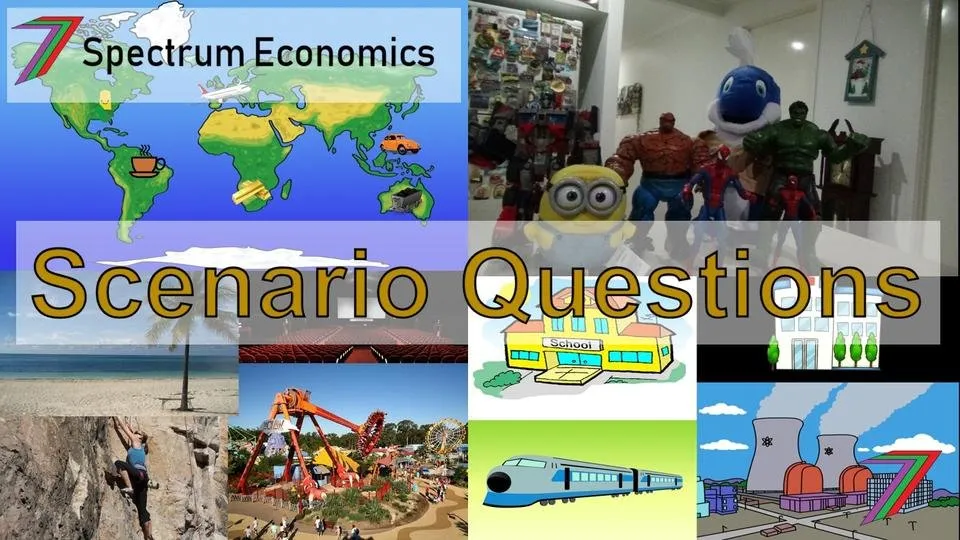
Assessment is another area in education that needs revising. Examinations are not a good measure of a person’s ability. They only capture a small snapshot of the content and are highly time constrained. Students often prepare for them by memorising content or model answers. Assignments are generally ineffective as well. Students can obtain help or even cheat through plagiarism or artificial intelligent. I believe an appropriate new form of assessment technique are scenario questions. These would be conducted like assignments; therefore, students are not dependent on memorising facts. They would not test a topic directly by requiring a factual response. They would present a hypothetical scenario. The student would propose his or her on own solution supported by whatever theory they believe addresses the presented scenario.
Technology
Accessing the Potential of Technology
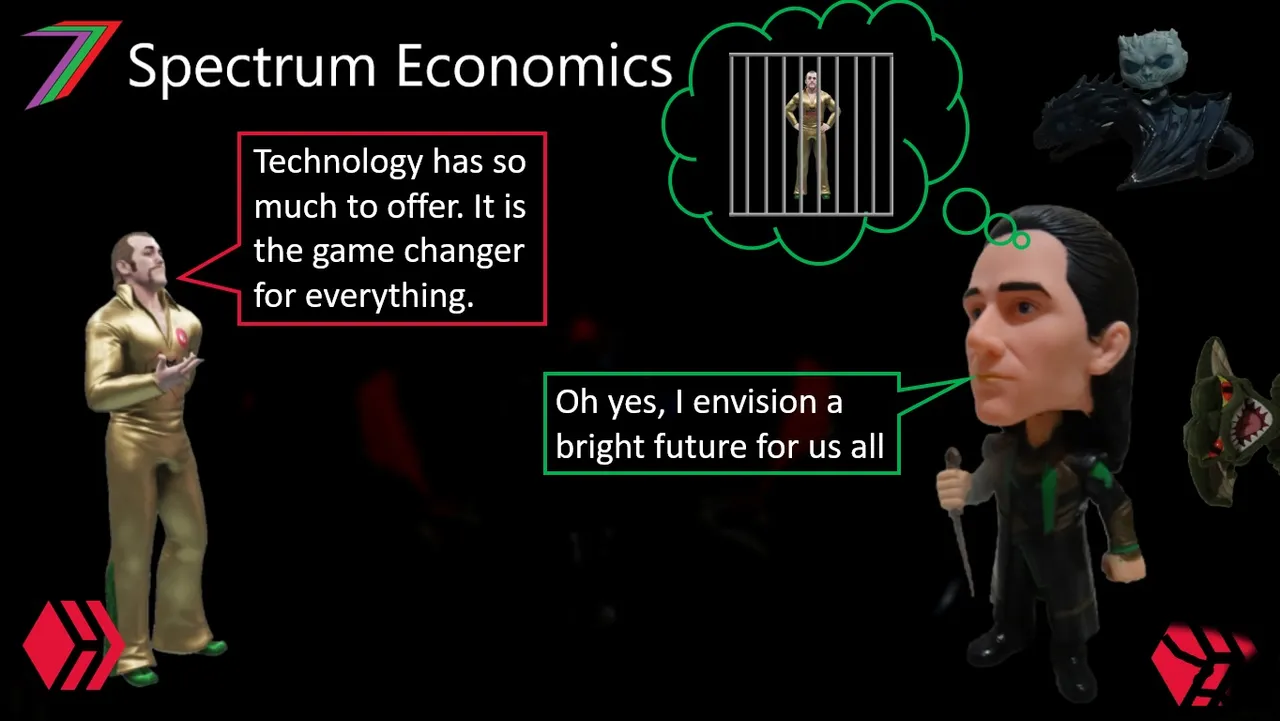
Technology has transformed the world we live in. It has vastly improved efficiency and has vastly improved our quality of life. Technology allows us to do more and to a higher standard in a much shorter time. It has the potential to free up time. We can use this time to do the things we enjoy and spend time with the people we love. Technology allows us to do things and have experiences that were not possible before. We can travel the world and visit places that would have taken too long or would have been too expensive to do in the past. It provides us with gadgets that can enable us to communicate and be entertained in new and different ways. It reduces the time needed to do mundane household chores. The list of potential benefits is enormous. Somehow, it has not worked out that way for most people.
Technology – Curse or blessing?
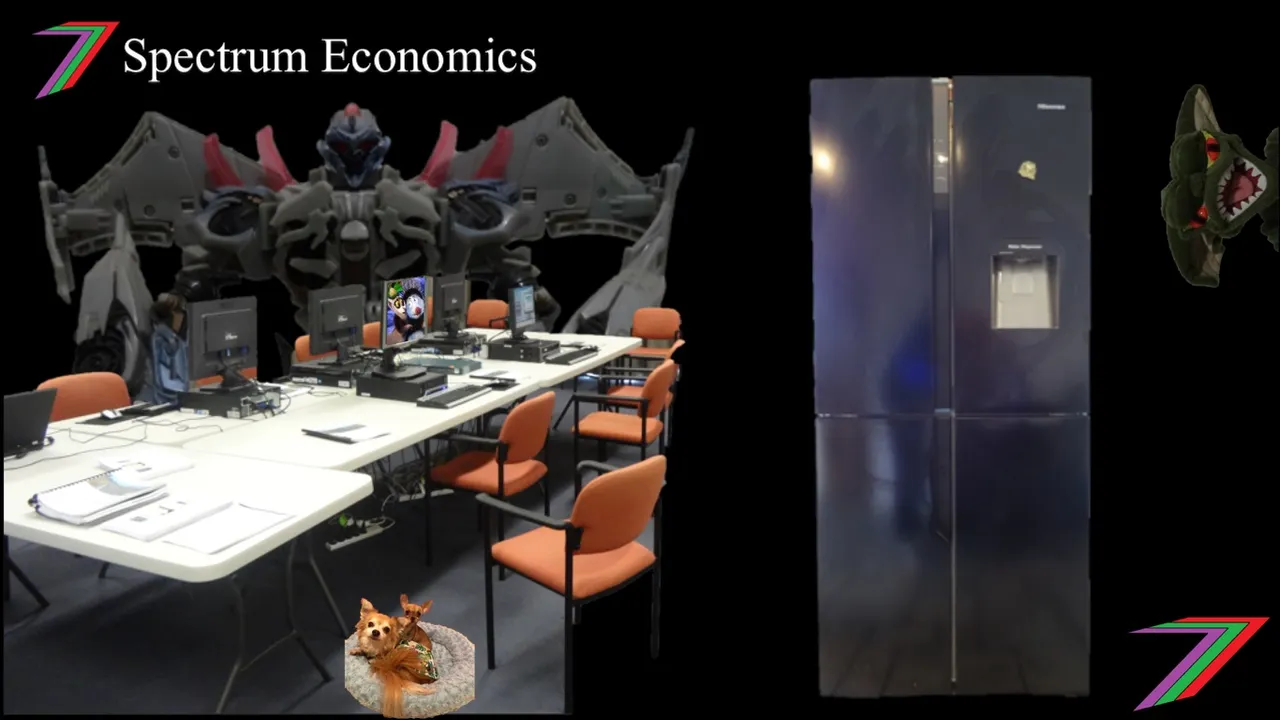
I am a big fan of technology. It can make work more efficient and can improve the quality of our lives. However, many people are sceptical about technology. It poses a threat to their jobs and can be used to cause suffering. It is not technology itself that is good or bad but whoever drives its development and implementation. Technology is developed out of someone’s self-interest. That self-interest can benefit most of us or just some of us and it can even harm others. Development of technology needs to be motivated by good intentions. The rewards from technology need to be fairly distributed to all those that contributed to its effective use (e.g. the investors, the inventors, those operating the technology, and the customers who buy goods and services supported by the technology). A fair distribution cannot be enforced. It needs to be determined through unbiased competition.
Less jobs vs less working hours – Further discussion about efficiency and technology
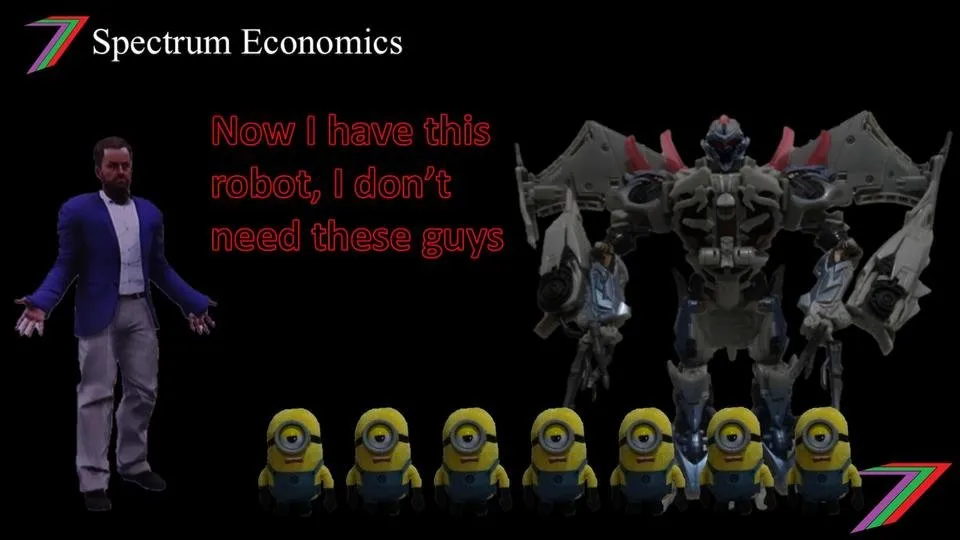
What is more important, the number of hours worked or the number of people working? Output is based on the number of hours worked and how efficiently these hours are used. If efficiency increases, the number of hours required to produce the same output is reduced. An appropriate approach would be to increase output while reducing the number of hours worked. There are several ways to reduce the number of working hours. The same number of people could work but with less hours each or less people could work with the same hours each. Businesses are likely to prefer reducing the number of people and maintaining the same number of working hours per person. This creates more competition between workers; thus, prevents wages from increasing at the same rate as productivity.
Two things that could change the world

If we want to change the world or at least contribute to that change, we need to begin with ourselves. In the post, I discuss two areas that are important to me and can contribute to changing the world. The first area is veganism. I am vegan but I typically refer to myself as having a plant-based diet and cruelty minimal lifestyle (more accurately replacing cruelty-free as a more realistic goal). This lifestyle can directly make the world a better place. It contributes to sparing the lives of animals as well as reduces cruelty to them. It benefits the environment as well. I will revisit this in the next section of the collection. The second area is blockchain. We are controlled with our own money but we do not have to be. Using cryptocurrency can enable us to break from the centralised banking system. Blockchain does not stop with just monetary freedom. It can enable broad and efficient decentralised governance. Many of the oppressive systems we have today can be replaced with blockchain enabled systems where decision-making can come from and be enabled by anyone.
The Blockchain Economy
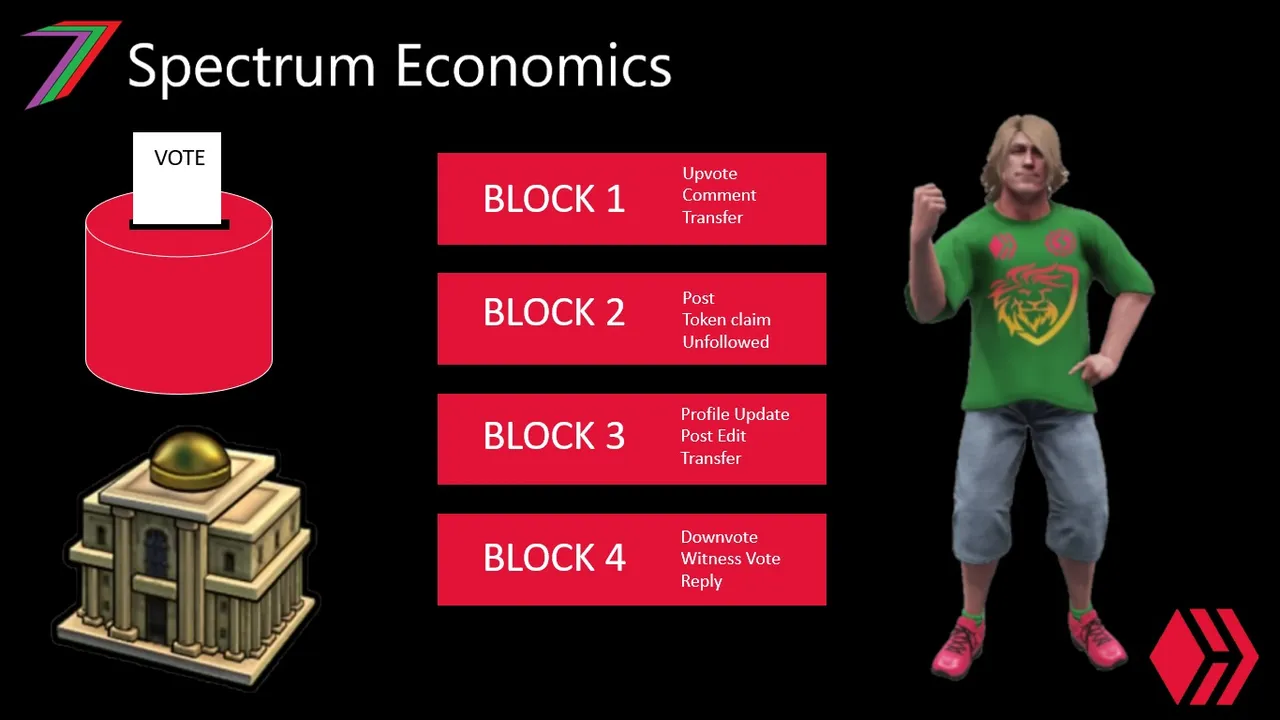
The blockchain economy is a radical new idea that could dramatically change governance and economic systems. It has the potential to include elements of democracy that were not possible due to inefficiency. Hive is a very basic example of an ecosystems that that has a successful blockchain economy and governance systems.
Blockchain Government – Part 1: Breaking Down the Existing System
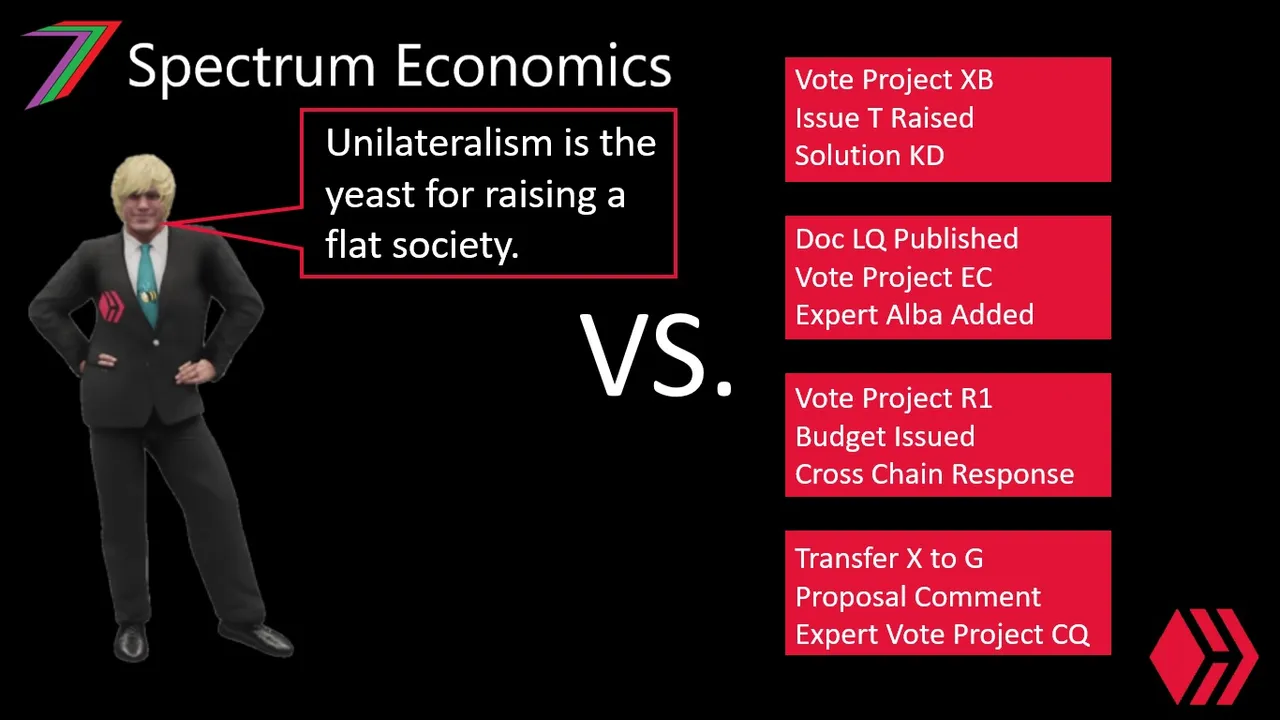
A blockchain governance structure and system is vastly different than existing Governments. For a blockchain type of governance to be possible. The existing systems need to be broken down and weakened. The existing versions of representative democracy are self-perpetuating because of the two-party or two ideology systems. These need to be removed. This would involve abolishing parties, changing the voting systems, and removing media and exposure bias.
Blockchain Government – Part 2: Leadership from the Blockchain
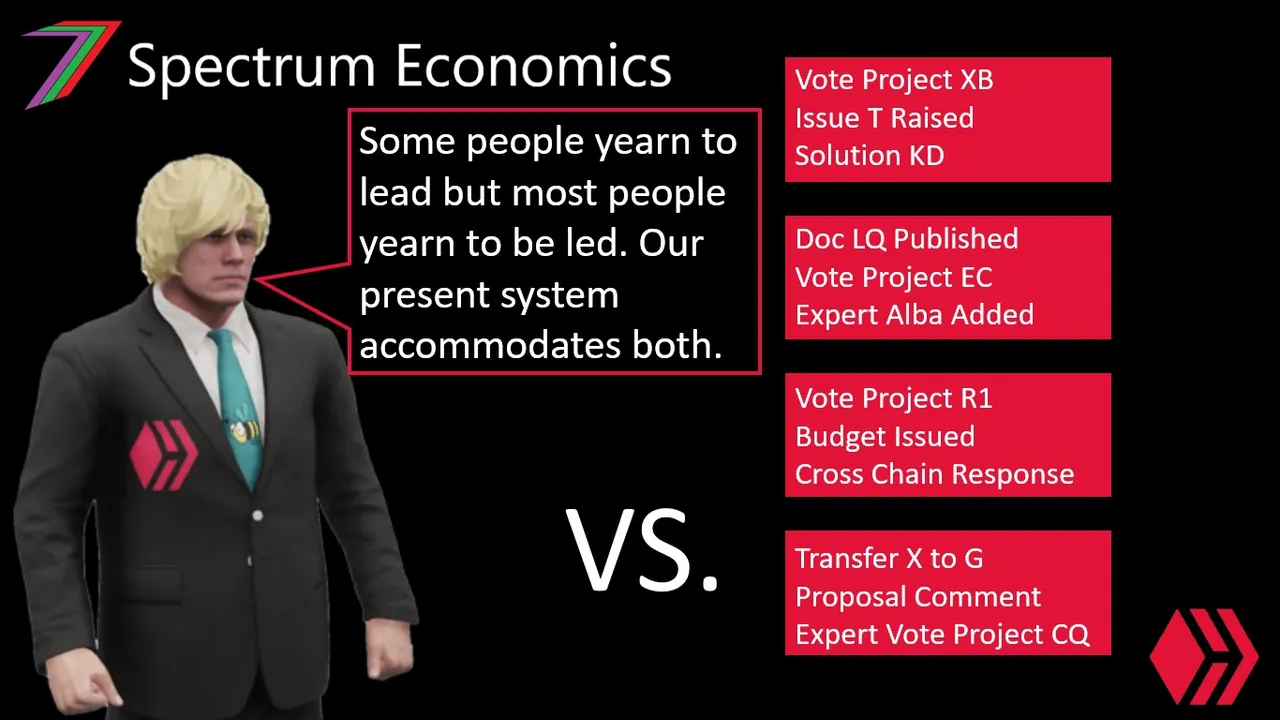
Blockchain technology and potential could be applied to governance in many different ways. It would need to fulfil several criteria for it to be successful. The processes in the systems would need to be transparent. The outcomes achieved would need to representative and fair. The approaches would need to be fit-fit-purpose and consistent. There must be accountability for all decisions. The overall system must be effective at achieving its goals. The post outlines just one possible way it could be applied to a country or state.
Blockchain based Virtual Shopping Hubs
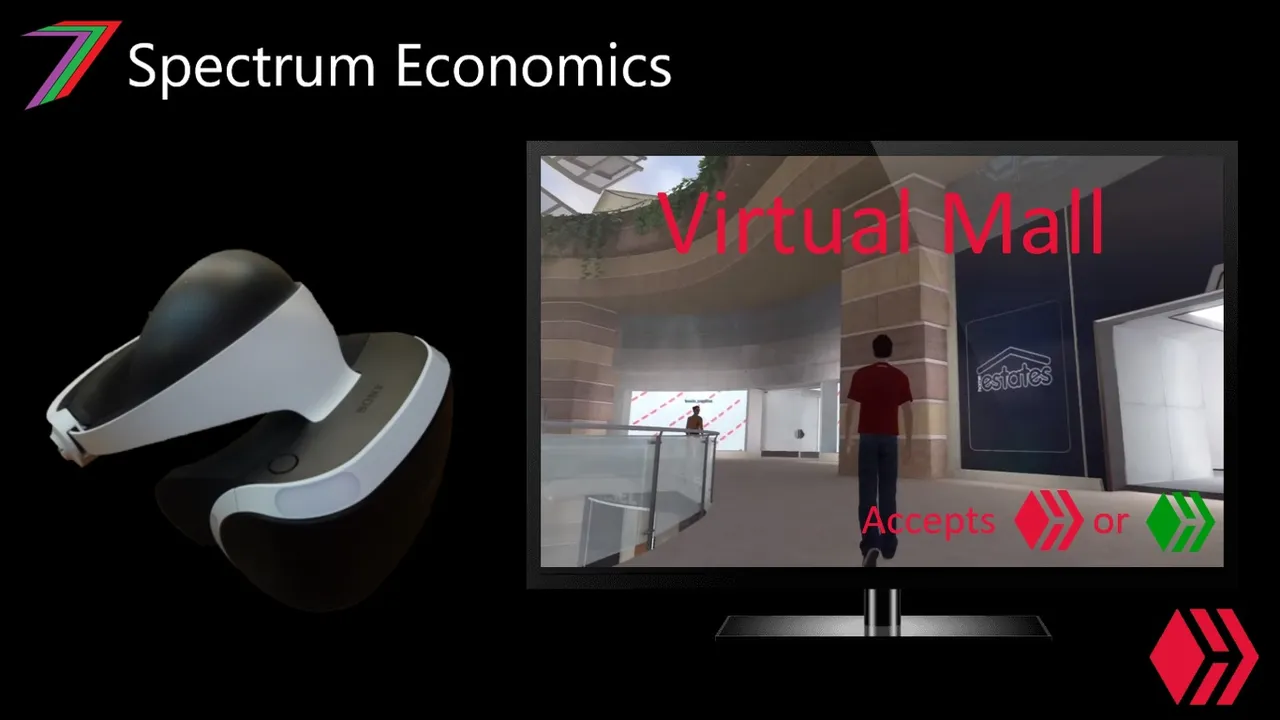
Blockchain has almost limitless potential. People are finding new ways to implement blockchain technology on a weekly basis. We can see this with the creation of new blockchains as well new coins and tokens. A very interesting potential use for blockhain technology is the virtual shopping hub. A blockchain could be set-up like an online shopping centre or high street. Vendors could set up their stores online like they would in a physical shopping centre. The blockchain could be used to store various types of information such as prices, item descriptions, images, and links to external websites. It could also help in the conducting of business through the use of smart contracts.
Relationships with Other Species
Our relationship with other animals and the universal desire for freedom
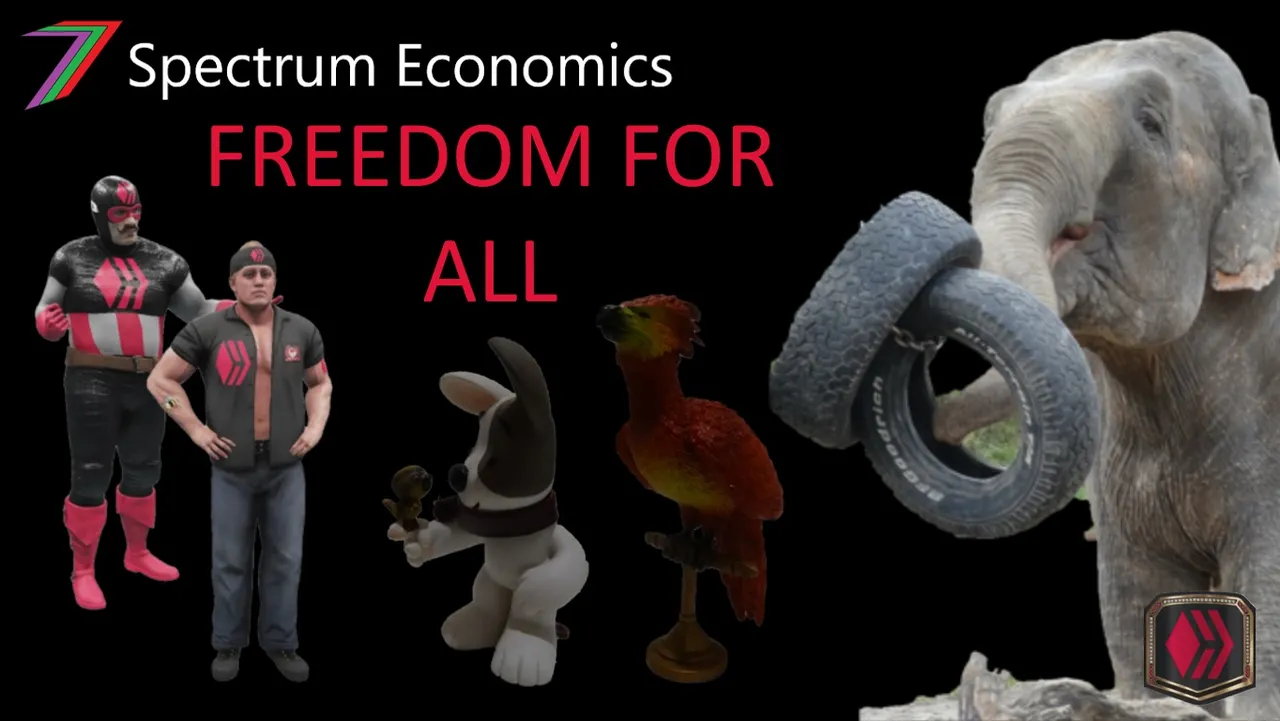
If we desire freedom for ourselves, we should respect the freedom of others. This includes other species of animals. We care more about those closest to us. It is likely we care about our family and friends the most, followed by our community and people we share same interests, religion and culture, followed by people from our country or of the same ethnicity, and followed by our species in general. Other animals could be so far down our list of priorities, we do not actively show any care. We care more about the taste of our food than we do about the short painful life of the animals that died for this food to be prepared. Animals are treated as objects rather than another species that deserve our respect.
Cruelty-free Economics - Valuing Life (Third Revision) (Part 1)
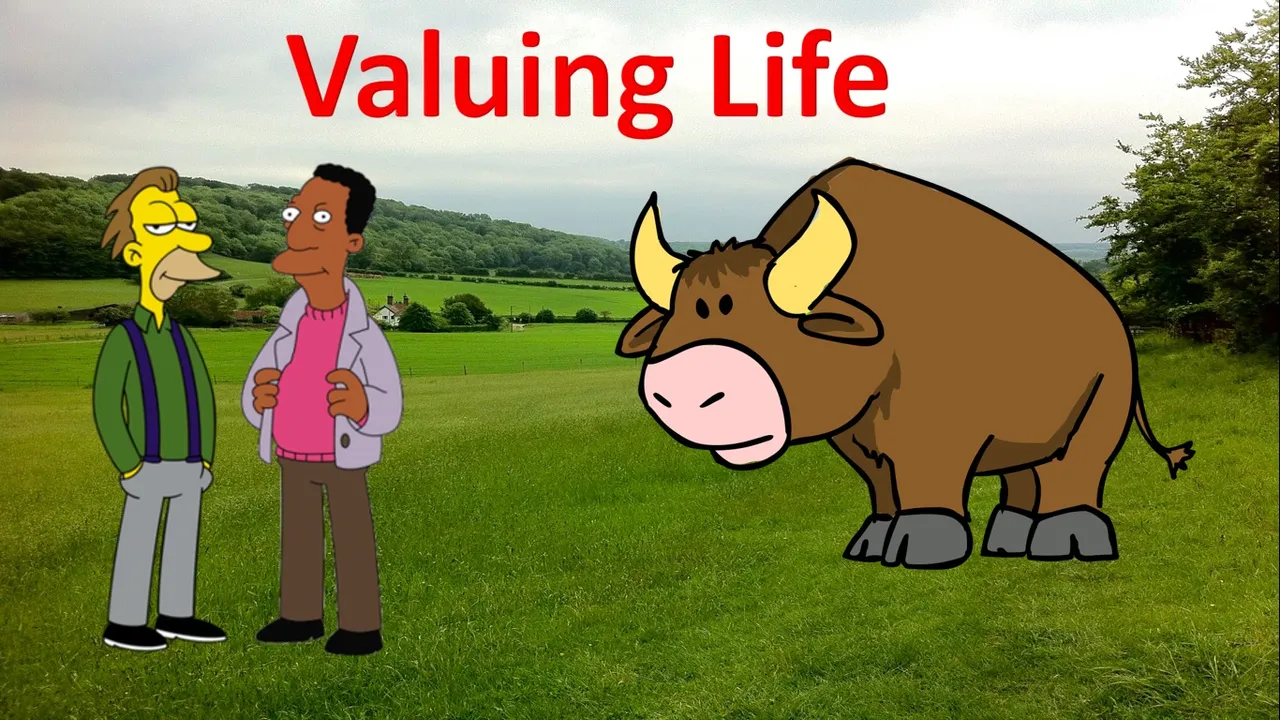
People assign value to things based on their perspective. This approach has been applied to other species of animals. Other species of animals are considered as property. My argument has been consistently that animals should not be considered as property. They have value in their own right. My problem has been determining and understanding this value. I tried in several of my earlier videos and posts to determine this value. I have focused on value of statistical life studies in regards to humans, intelligence using the Encephalization Quotient, and life expectancy. In additional to determining a direct value of life, I have also explored value in regards to the broader ecosystem.
Valuing Life (Part 2) - Valuing Human Life
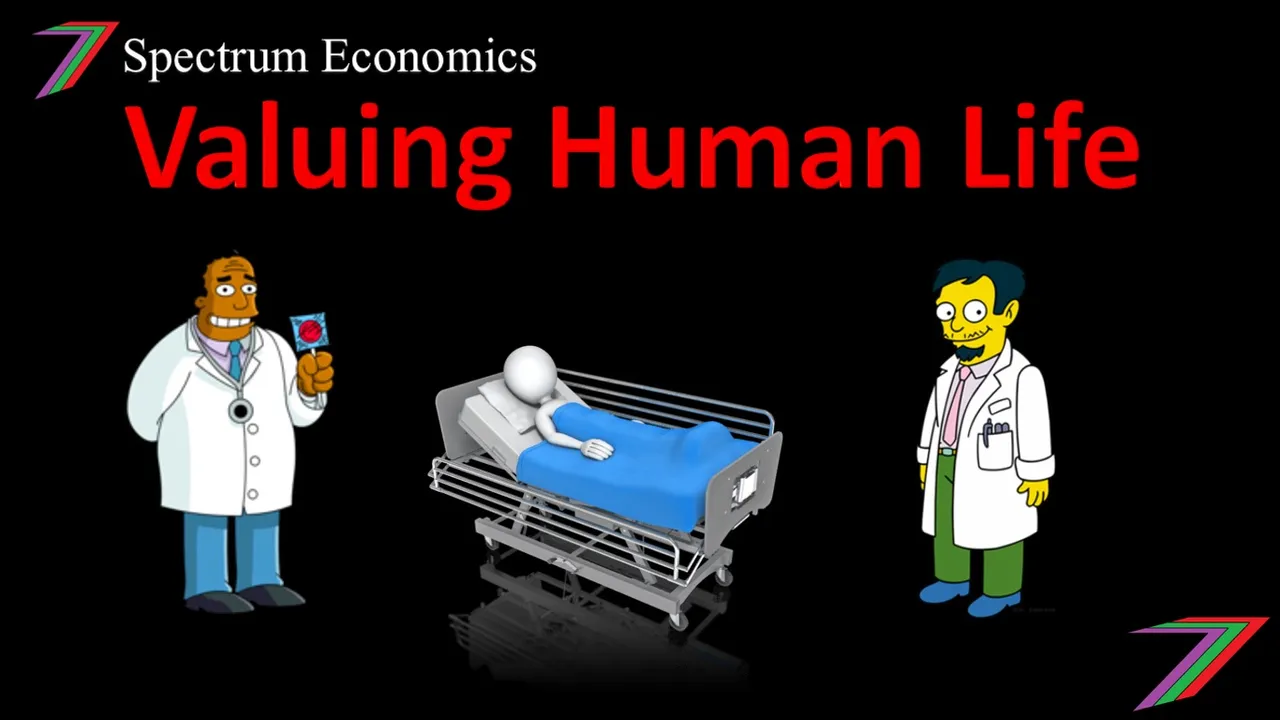
Value has been placed on human life from various reasons such as insurance or for the purpose of evaluating initiatives that affect the probability of loss of human life. Human life is easier to value as we can more easily assess human behaviour and obtain feedback about decisions and opinions. The value of life assigned to humans could be used as a basis for determining the value of life of animals of various species.
Valuing Life (Part 3) – Valuing the life of an animal
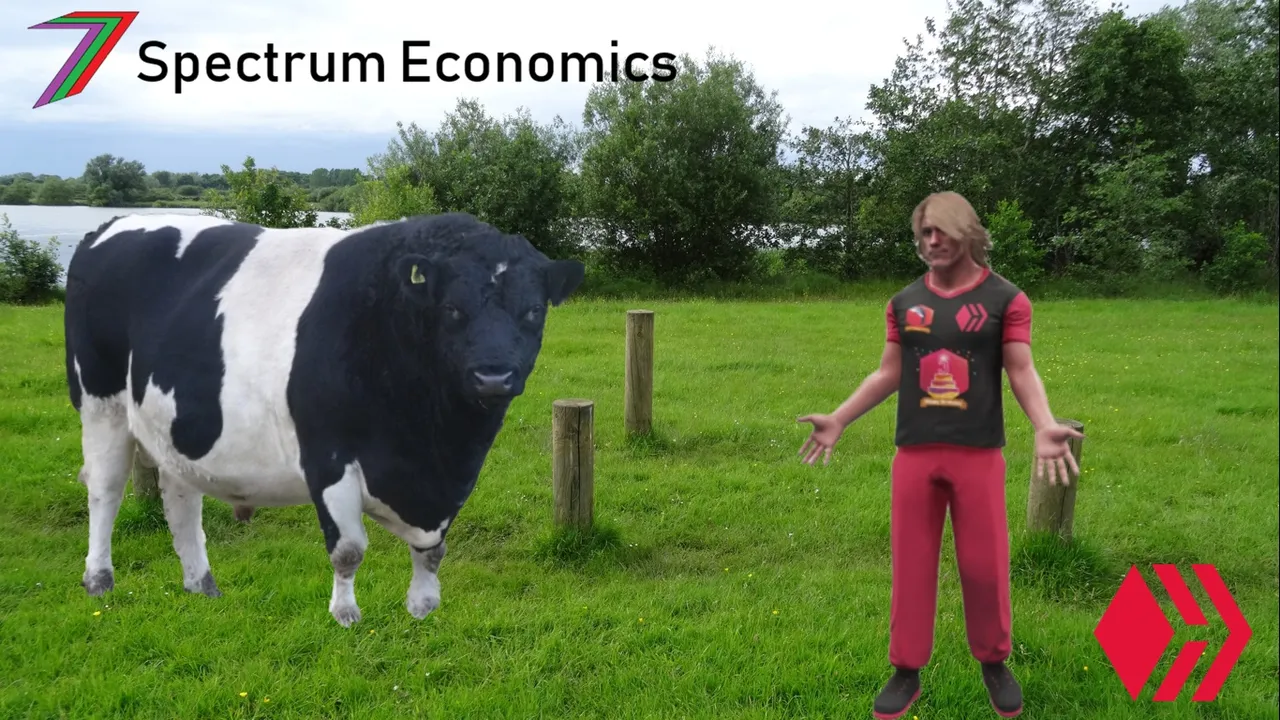
The value of human is adjusted to account for various different characteristics of different animals. These include intelligence, life expectancy, reduction of life caused through slaughter, and reduced quality of life of being held in captivity. The post provides results for 15 species of animals.
Valuing Life (Part 4) – Valuing life as part of an ecosystem
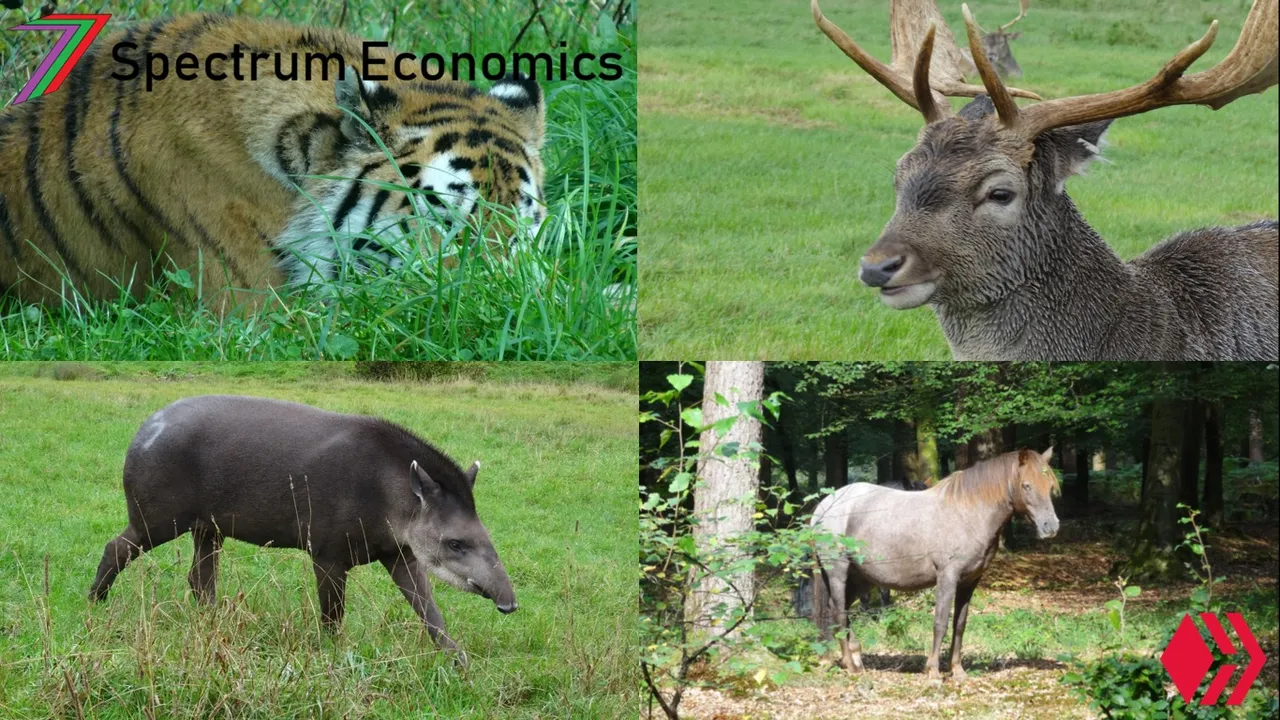
Part four of the series moves away from attempting to place value on the lives of different species. Instead, it considers the contribution of each species to their ecosystem and the maintaining of balance. Balance can be interrupted if particular species or types of species increase or decrease. An increase in the number of species can put a strain on their food supply. A decrease in the number of species can put a strain on their predators. The importance of a species varies in terms of its success and the success of similar species. Human activity interferes with this balance by holding species in captivity and breeding them. They also interfere with this balance by encroaching into animal’s natural habitats.
Do the reasons for reducing meat consumption matter?
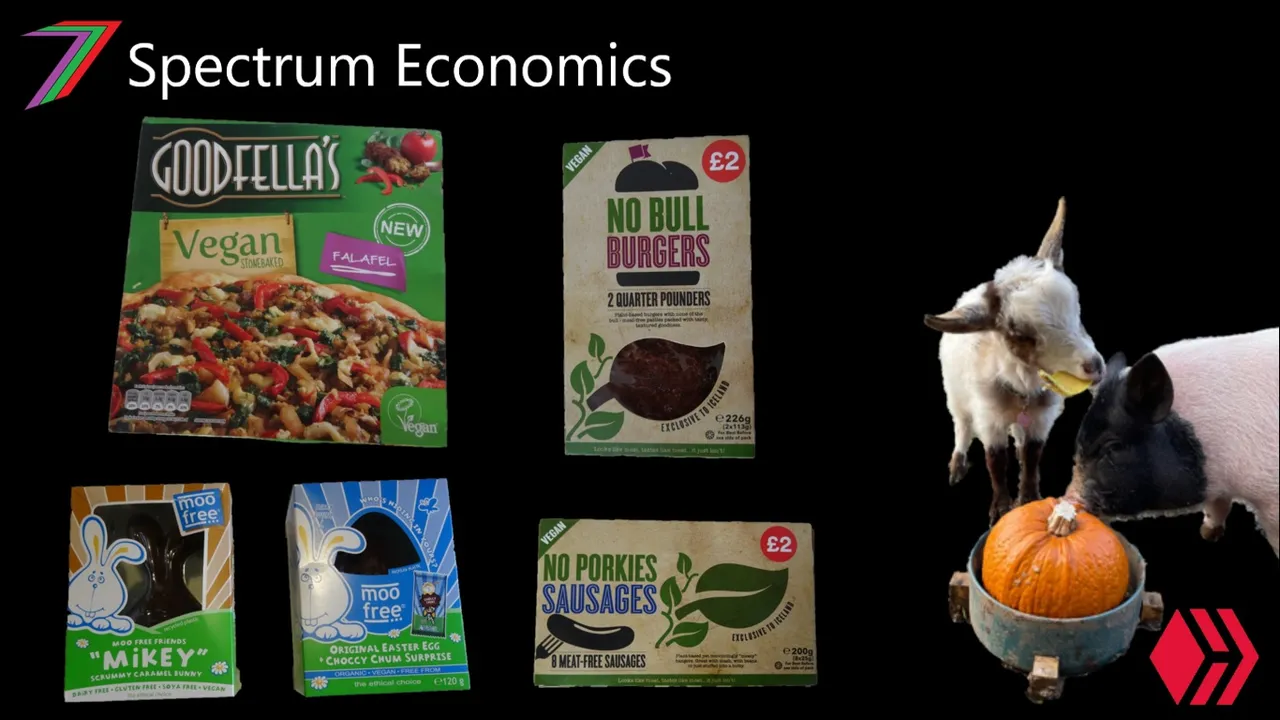
The number of people switching to flexitarian, vegetarian and vegan diets is consistently increasing in many countries. Why are people making this change? For vegans it is overwhelming related to animal welfare. However, the overall transition away from meat is linked to other reasons. The main reason is health. Animal welfare could be as low down as fourth on some surveys. Flexitarians are driving the move away from meat more than vegans or vegetarians. The rapid increase in the consumption of vegan alternatives to meat is also being driven by flexitarians. People who buy these alternatives are still buying and consuming meat products. Regardless of the increase in vegan meat alternatives, the sale of meat products is not declining per capita.
Manipulated for Us
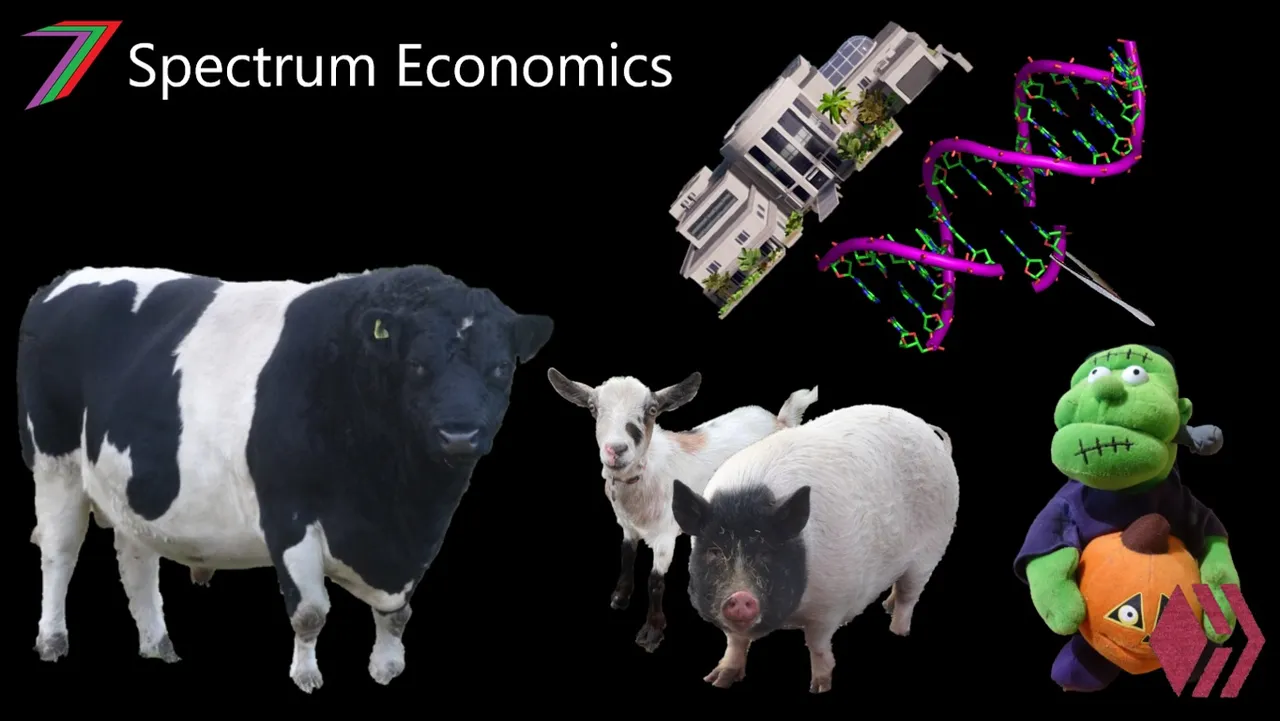
Humans manipulate everything they come in contact with for their own benefit. Most of the time it works out well for us. Our towns and cities were built from materials from across the region, country and even from overseas. The clothes we wear and the items in our homes are made from materials sourced from elsewhere and then transformed into something that does not even closely resemble its original form. Even the food we eat comes from around the world. It is combined together to make tasty dishes. Manipulation of our world has gone wrong on a few occasions. If the problems impact us directly we tend to fix them. If our manipulation is hurting our environment in ways that do not directly impact us, we are not so quick to respond. Animals are the biggest victims of our manipulation. Dog breeds are almost entirely a product of human intervention. This intervention has customised them for our purposes. At the same time, it has made them vulnerable to different diseases. Farm animals are also manipulated. They are bred to be bigger and heavier, to produce more milk, more eggs, or more wool. It is unlikely any of these animals would ever survive in the wild.
God, Gods, Aliens, and Trolls
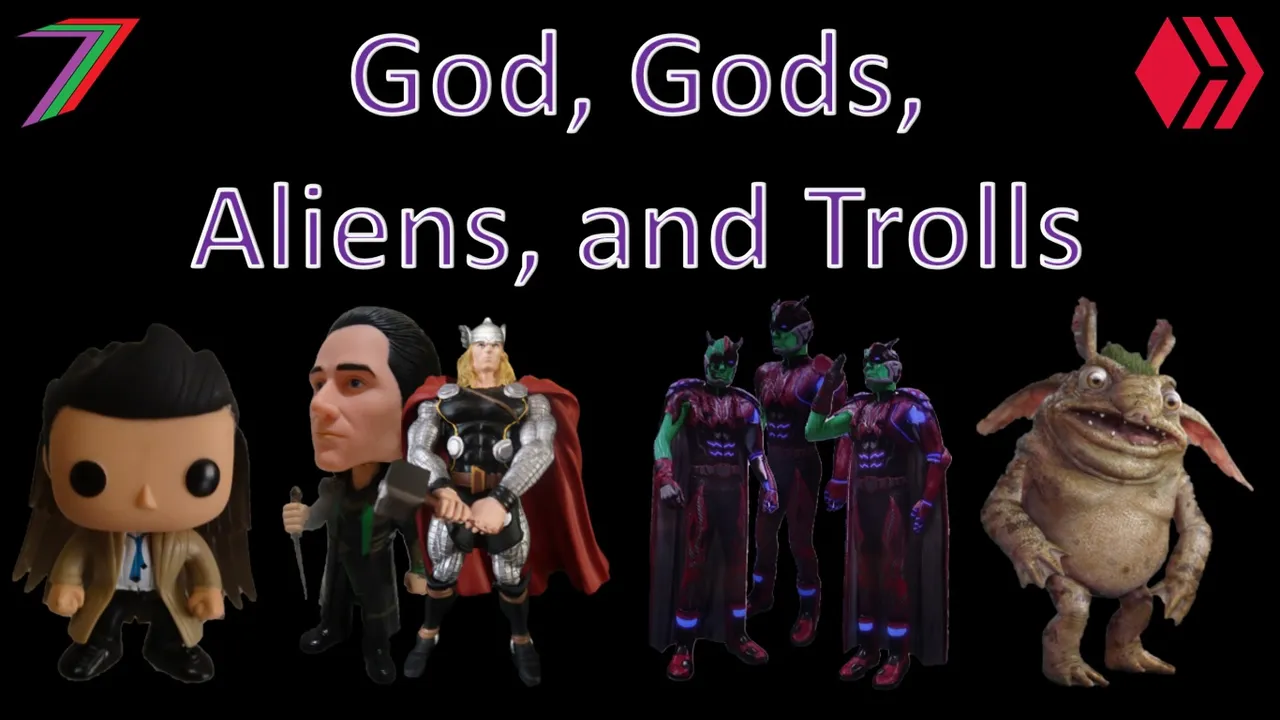
Humans dominate the world because they can. We have used our intelligence to make ourselves the dominant species. Our advantages seem unnatural as our existence is creating an imbalance. It would be strange for any species to evolve in such a manner. Evolution is about adaption and not domination. Therefore, we should entertain the possibility that intervention has taken place to give us our advantages. Religions claim it was god or the gods that have gifted us this advantage. Evidence of such divine intervention is lacking. Hence, why we have so many religions and why science appears in conflict with religion. Another alternative explanation would be alien intervention. They could have manipulated the DNA of an earth ape to create humans. Therefore, humans would not be the most intelligent species that has been on this planet. As animals are at the mercy of humans, could humans be at the mercy of aliens or another species created by these aliens?
Relationship with our Environment
Economic Concepts #11 – Externalities
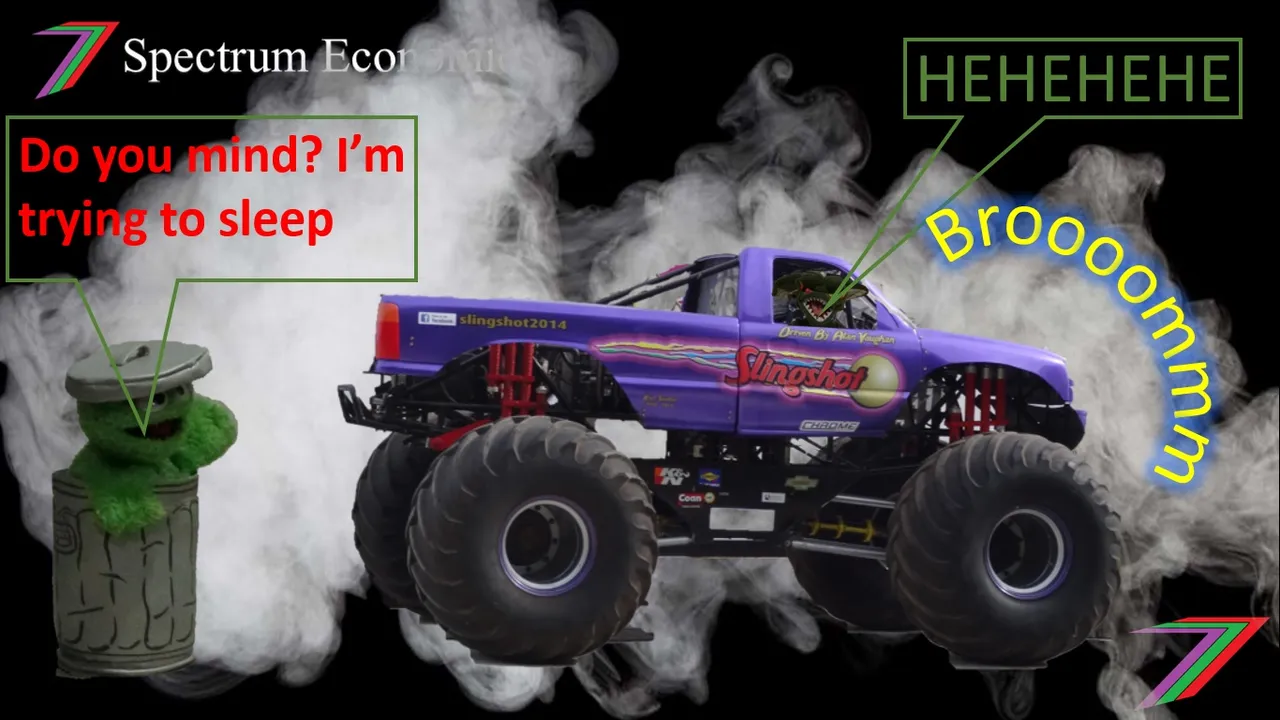
Externality is an important economic term. It relates to the indirect impacts of human activity and typically relates to the spill over effects of trade. A person buys something from someone else. The thing they bought affects other people around them. It could make a noise or give off a smell. If the people around them enjoy the noise or smell it is a positive eternality, if they do not is it a negative externality. Either way the people who experience this noise or smell did not pay for it or compensated for the annoyance to them. Many of our actions have spill over effects on the environment. This is often in the form of pollution, or the destruction of habitats.
Our Relationship with the Environment
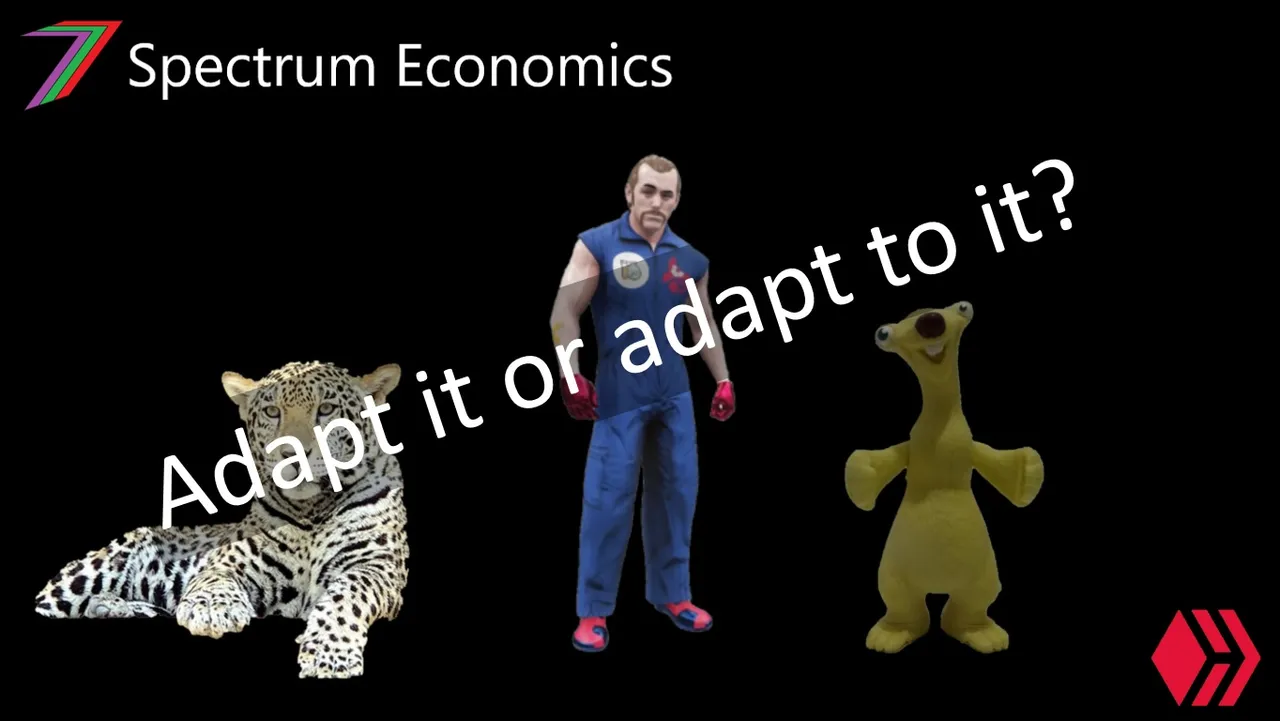
No other animals manipulate their environment in the way humans do. When things go wrong with this manipulation, humans are able to adjust. However, these adjustments often only fix the short-run problems. The long-run problems tend to remain and could potentially be irreversible. The environment is most affected by the sun. We are unable to control the sun but we can impact some of what comes between us and the sun. Our planet is surrounded by the ozone layer, it absorbs most of the sun’s ultraviolet radiation. Our actions on this planet, mostly linked to the Governments of large nations, impacts the strength of this ozone layer. The launching of rockets and satellites, nuclear weapon testing, and geoengineering all negatively impact the ozone layer.
Environment – Prevent, Solve, or Manage
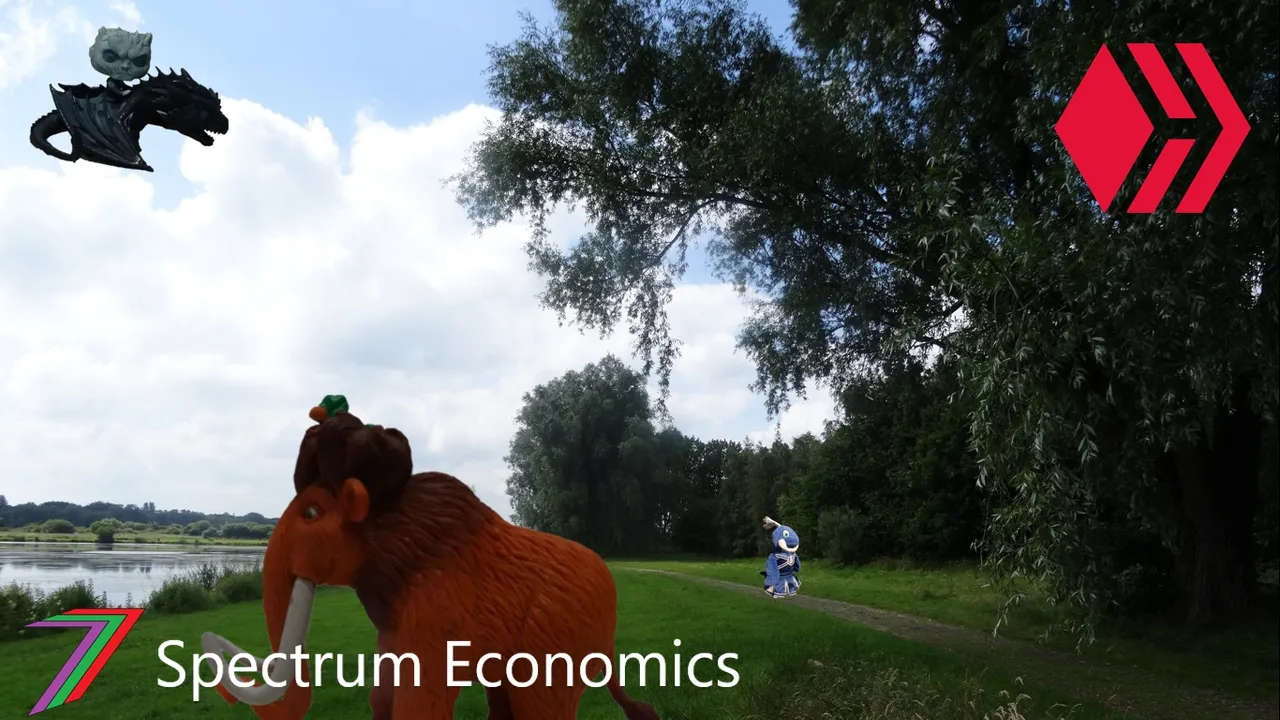
Most of the damage we do to the environment affects nature directly. We pollute the air, water and land. The loud noises we make affects how nature functions. We destroy habitats to collect resources for our benefit. Both public and private sector have failed to protect the environment from the pollution caused by human activity. Change will not occur until enough people desire change. This will happen when people prioritise environmentally safe products to the point they become more profitable than the products that cause damage to the environment. Before this can happen, people need to understand what is causing the damage and how it is being caused. People also need to reach a point where they are significantly affluent that basic needs and wants are not a concern that overshadows the problems of damaging the environment.
Scarcity (Part 1)
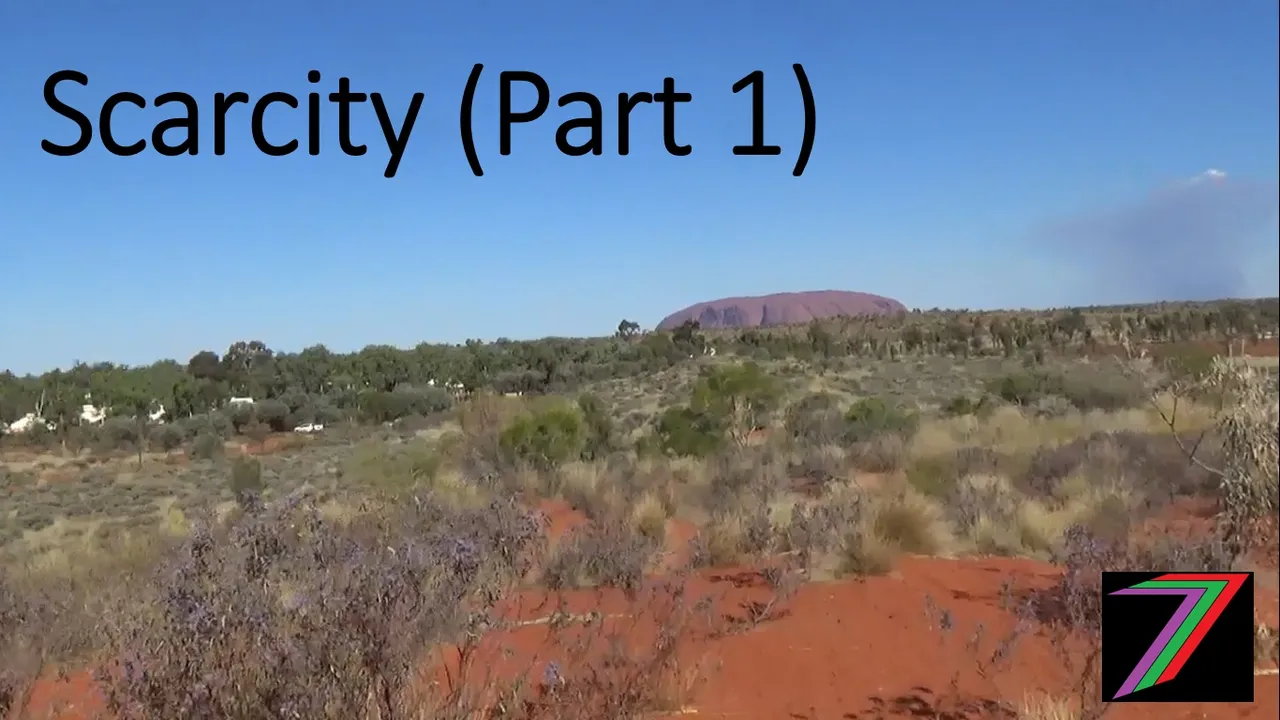
Scarcity is treated as one of the most fundamental problems economists are supposed to analysis, manage and mitigate. I wrote a five part series followed up with a five part video series discussing the types and nature of scarcity. In Part One, I introduce scarcity and start to challenge its existence and extent.
Scarcity (Part 2) - Natural or Contrived
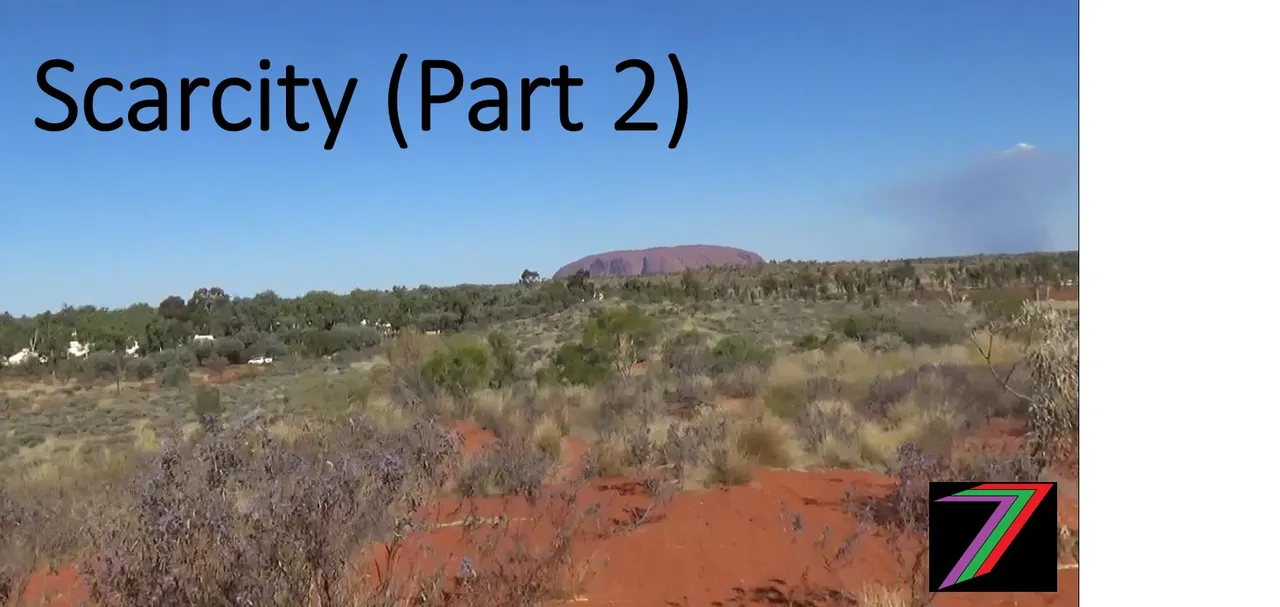
In Part Two, I discuss two types of scarcity; natural and contrived. Natural scarcity occurs because of a genuine shortage. Contrived scarcity occurs because supply is being controlled. The post explains how both Governments and the private sector (big business) control supply to force people to compete for it. Scarcity is essentially caused by greed rather than nature.
Scarcity (Part 3) - Meat and Dairy Land Use
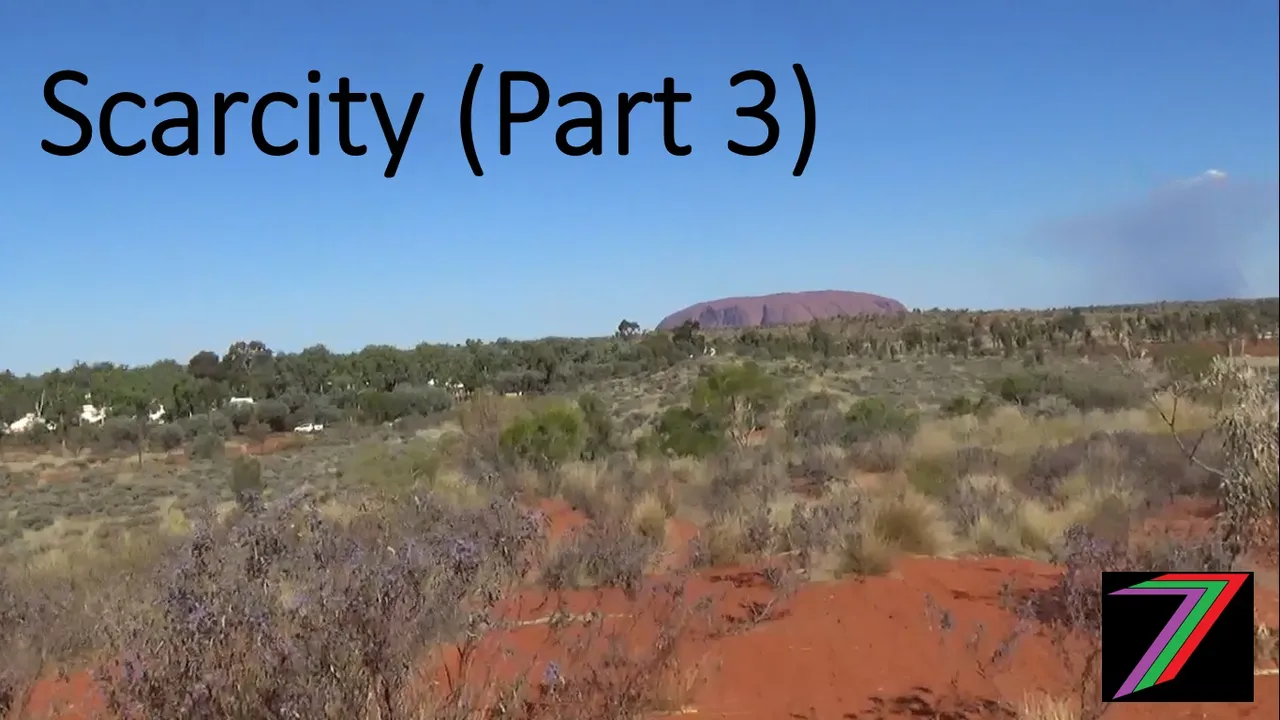
In Part Three, I introduce factors of production (Land, Labour, Capital, and Entrepreneurship) and how they relate to scarcity. Part Three is entirely focused on land. Many aspects of land is finite. Therefore, elements of it can be the described as scare. However, land has been made unnecessarily scarce by the way it is used. The post focuses on the extent of land used for rearing animals who are eventually killed and used to make animal products.
Scarcity (Part 4) - Labour, Capital, and Entrepreneurship
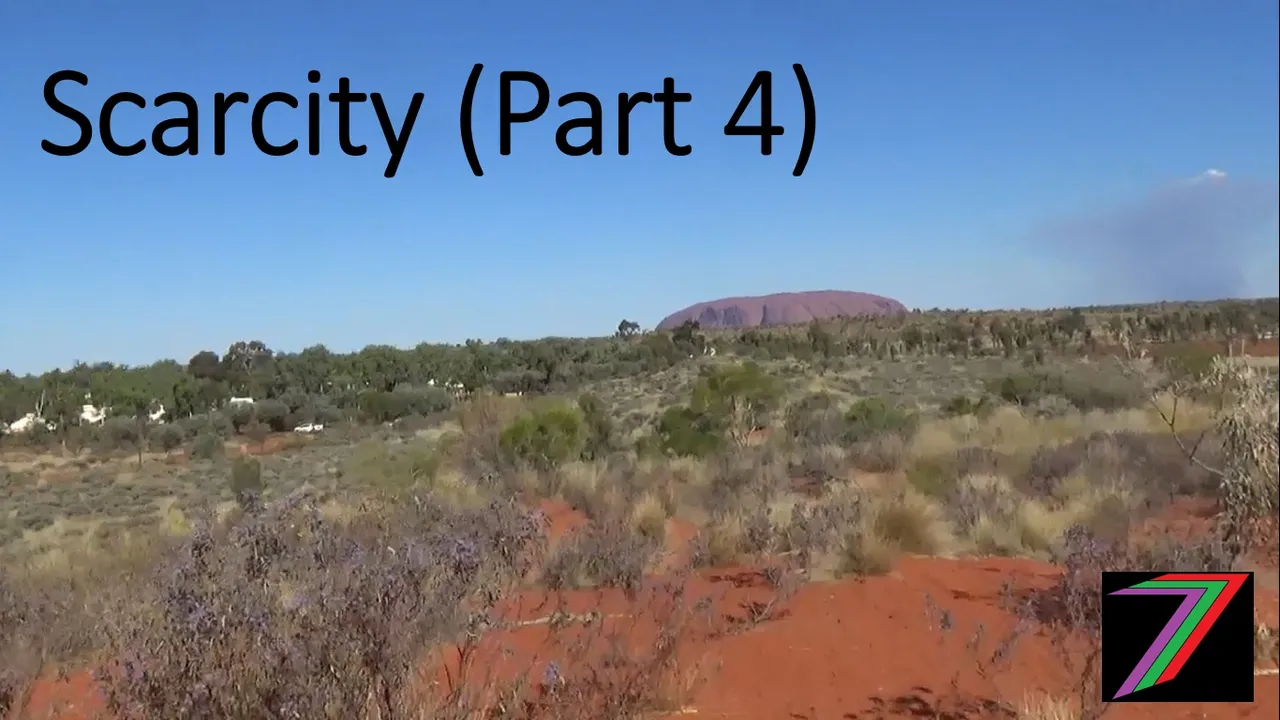
In Part Four, I discuss the remaining three factors of production. There are problems of scarcity for these factors of production but this scarcity is contrived and not occurring because of genuine shortages. Companies prefer longer working hours and less workers to force wages down. They prefer working hours over investment because of the low wages; therefore, causing a shortage of capital. Governments and Big Business work together to create barriers to entry and regulation to prevent small business succeeding; this creates a shortage of entrepreneurs.
Scarcity (Part 5) – Possible Solutions
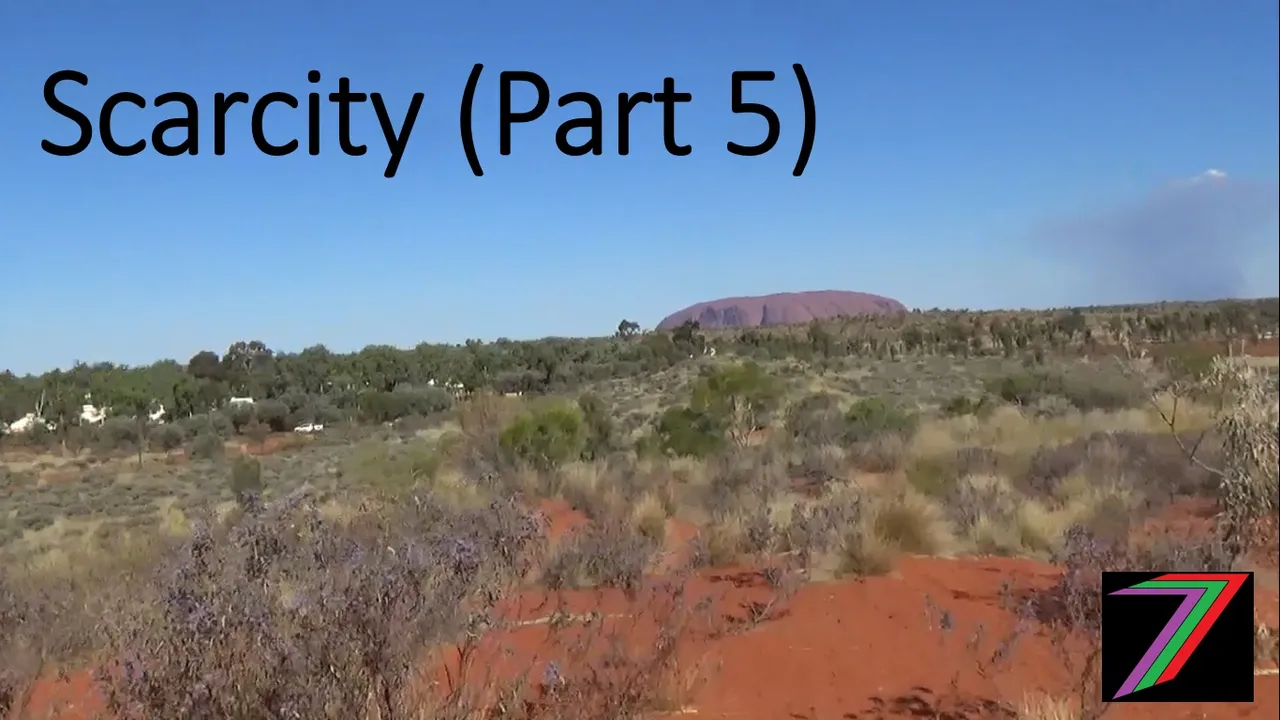
In Part Five, I summarise the previous four parts. I conclude the series by discussing things we can do to reduce contrived scarcity. These involve acquiring information and knowledge, activism, non-conformism, and patience and persistence.
Free movement of people
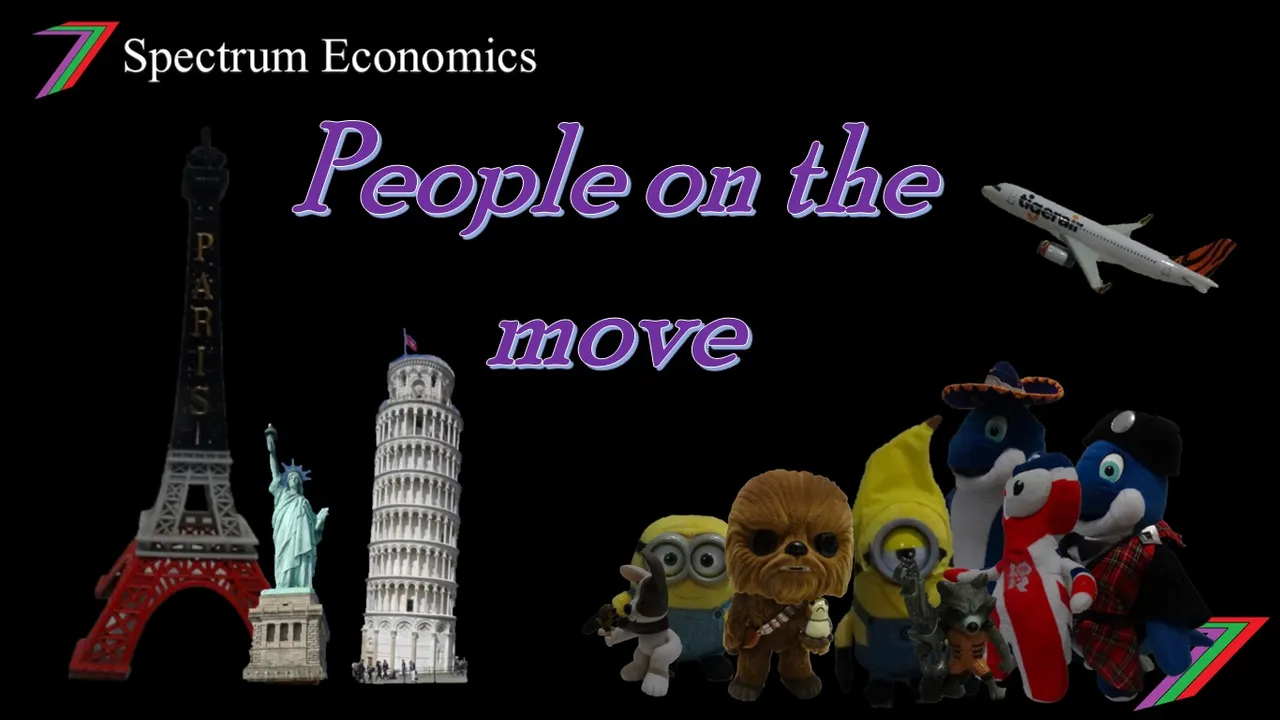
I believe migration has the potential to be greatly beneficial to both the migrants and the host country. Migration needs to occur because of pull-factors. People should migrate to a place because the place attracts them. This could be because of economic opportunities, attractiveness of the climate and landscape, or the attractiveness of the culture and belief systems. Opportunities provided by the country benefits the migrants as they are able to prosper. Successful migrants are good for the country and the people who live in the country. This is because the migrants are offering something of value, otherwise they would not have been successful.
Conclusion
A Possible Grim Reality
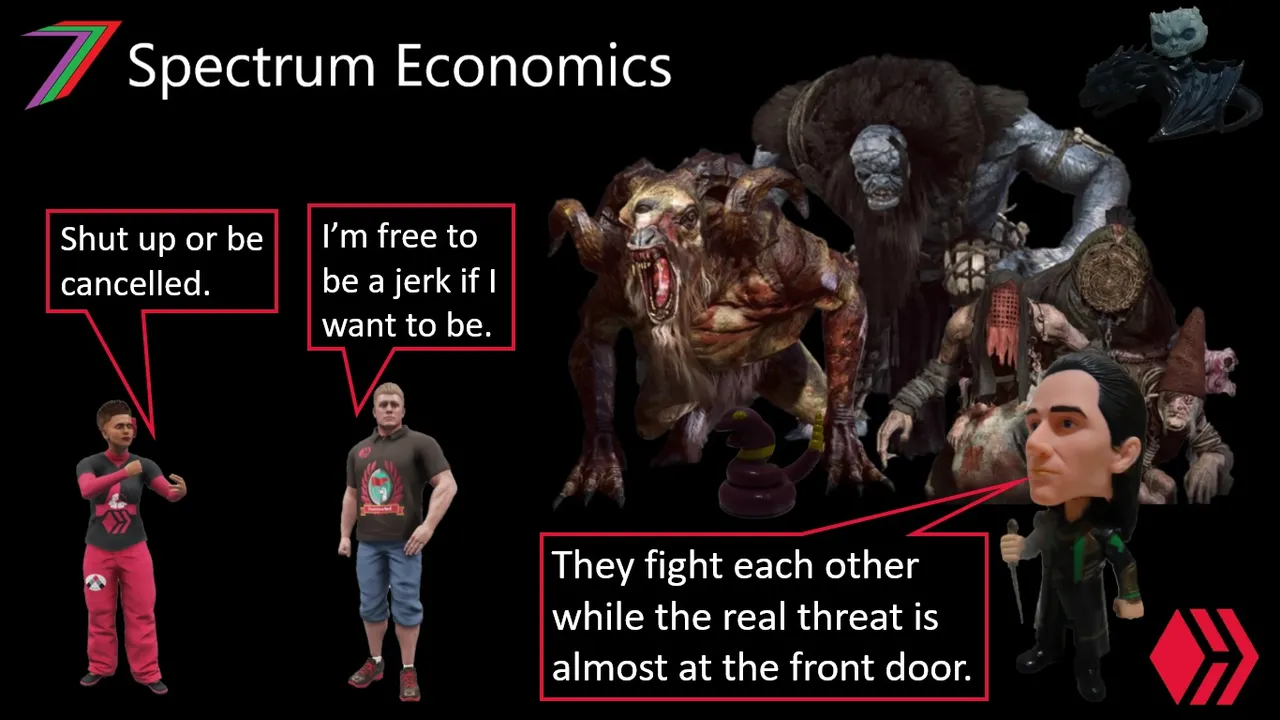
The world has reached a pivotal point in history. We could be heading towards a dystopian nightmare or we could be breaking free from an oppressive system. This post discusses the possibility that we could be heading towards a dystopian nightmare. This nightmare would occur if the Great Reset or something similar is implemented in full.
Bright Future out of Chaos
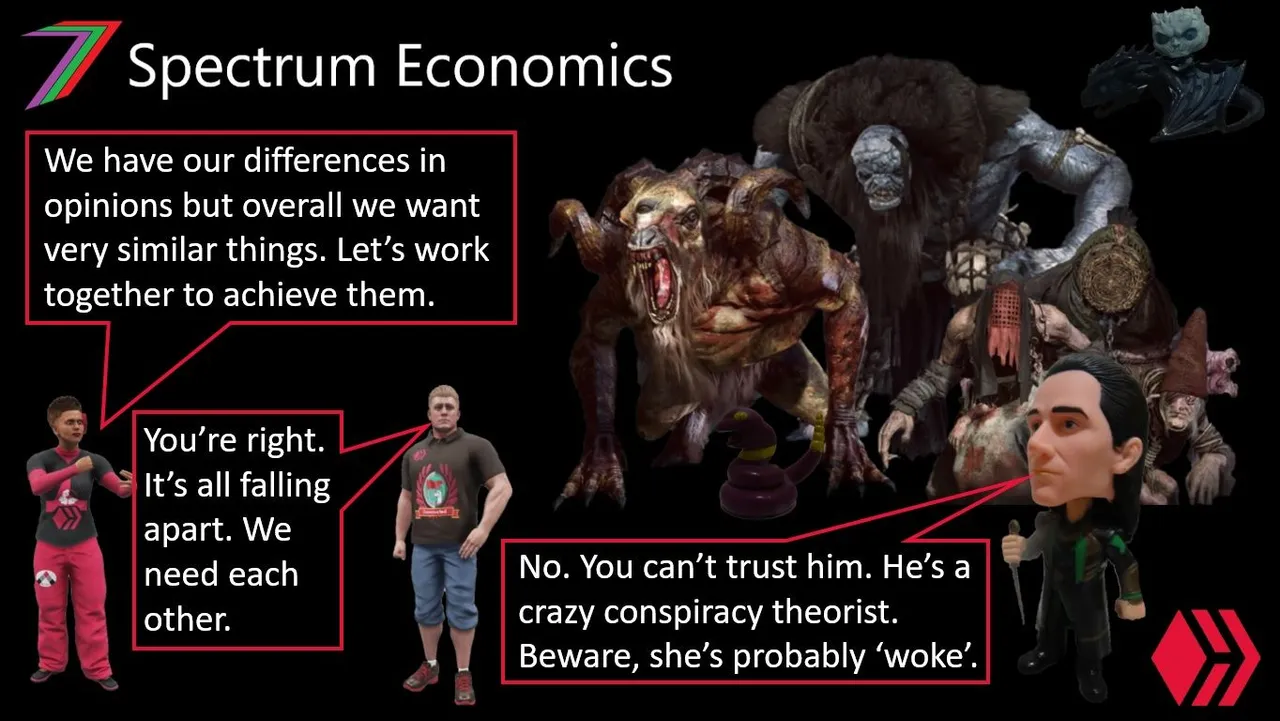
There is also the possibility that people will strongly resist the Great Reset and create a much brighter future. We have shown strong signs of resistance. In 2016, people in the USA went against the Establishment by voting in Donald Trump as president. In the same year, people in the UK went against the Establishment by voting for Brexit. Ever since then, the Establishment has pushed much harder to implement changes more rapidly. There was the Covid-19 fiasco, the war in Ukraine, climate crisis, woke ideology, and the inciting of race wars. Propaganda and censorship has gone into overdrive. It is a sign that the Establishment are afraid that they will lose their grip on control. Therefore, they want to obtain stronger direct power. This aggressive approach is waking people up more quickly than ever before. One way or another everything is going to collapse. We have a choice on how we are going to rebuild.
What if we could establish a new system of governance that worked but it is not accepted internationally?
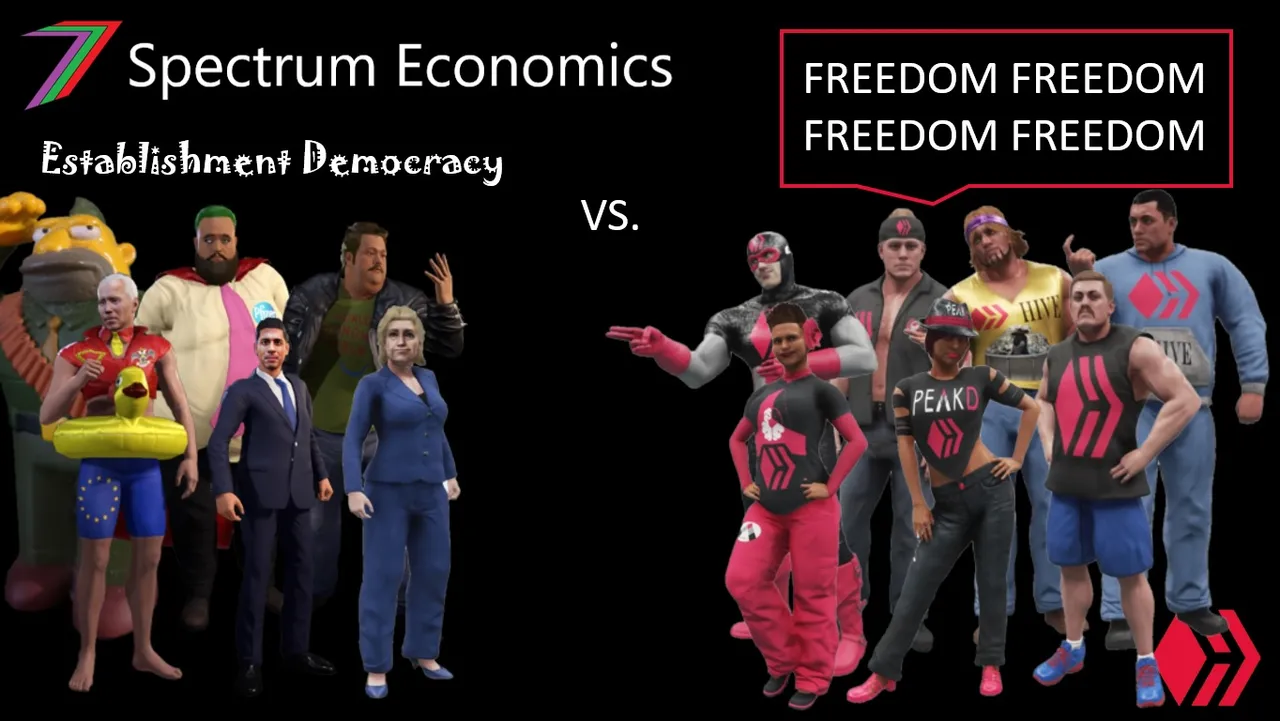
I have a fear that if a society breaks free from the system, it will fail. This is because other bigger and more powerful Governments and Establishments will commit to destroying it. The US Establishment is the most aggressive establishment for attempting to control other countries. They have done so using various different tactics. They use intimidation with military presence, they use propaganda with their media and entertainment, they create poverty with trade sanctions, and they infiltrate countries and overthrow leaders using colour revolutions. The European Union (EU) has attempted to punish the people of the UK for voting for Brexit. They made negotiations difficult by attempting to tie the UK to EU laws, they have tried to cut Northern Ireland off from the UK, and the English Channel crossing crisis happened to coincide with the signing of the withdrawal agreement to leave the EU. Any country attempting to break free from the Establishment systems could face insurmountable opposition. However, there is hope. The strongest opposition is likely to come from the US Establishment. The US Establishment is one of the most vulnerable to collapse. This is because the America people have a strong tradition for fighting for freedom. They have shown the most promise and the most resistance to their Establishment. They are likely to be one of the first to succeed in bringing down their Establishment. This is possibly a reason why the USA may not feature as a major power in a Great Reset scenario.

